
Controversial songs from the year you were born
Not a year goes by without some music controversy—in fact, 2025 has already delivered a few contentious tracks. In some cases, the pushback is minor, as with "How Bad Do U Want Me" from Lady Gaga's March 2025 album "Mayhem," which was accused of ripping off a Taylor Swift track. Some controversies run deeper, like the ongoing debate over hit country artist Morgan Wallen, whose music is tainted for some thanks to his use of a racial slur in a 2021 video and his more recent abrupt departure from the "SNL" stage. Then some kerfuffles aren't about the music at all. Just ask Sabrina Carpenter, who found herself at the center of controversy for her album cover in June 2025.
These are hardly the first artists to come under scrutiny. For more than a century, the evolution of popular music has delivered stark parallels to Western society's progression. Popular songs and styles partake in a tangible feedback loop, simultaneously responding to and informing cultural shifts. In turn, the best tunes make purposeful or inadvertent statements about the era in which they're being recorded and released. Some of those statements, meanwhile, never lose their ability to resonate. Perhaps this is why songs like "We Shall Overcome" continue to be used as a rallying cry against oppressive forces.
Because music has the unique ability to go with and shape the cultural tide, history's most groundbreaking works are often its most controversial. From the 1920s to the 1940s, songs of poverty, racism, and hard labor threatened to undermine various institutions of authority. That was followed by genres such as rock 'n' roll and funk, which enhanced the growing divide between young and older generations. Decades later, popular music still influences fashion, attitudes, and perspectives, just as political and social forces also shape creative expression, as seen in the new wave of protest music generated by the Black Lives Matter movement.
With that, Stacker celebrates history's most boundary-pushing—and thereby controversial—songs. Taking a broad approach to the concept, Stacker selected musical milestones from 1930 to 2025 that either explored controversial subject matter or literally sparked controversy. To compile the list, Stacker scoured Billboard charts, music and album reviews, news articles, and primary documents found online. The resulting compilation includes protest songs, sociopolitical commentaries, scandalous music videos, and tunes that just rubbed people the wrong way. Each example provides a sonic document of society's past, while a few go to show just how little certain things have changed since the time they were recorded.
A brief disclaimer: Old music can be slippery; some of the songs listed were recorded or released well before they rendered any impact. Similarly, one artist wrote and performed many protest songs and then passed them down to others in the folk tradition, hitting the mainstream somewhere along the way. Consequently, some entries might be best described as approximations about when the song caused a stir or tackled a specific theme.
Without further delay, here are controversial songs from the year you were born.

1930: 'Prohibition is a Failure'
- Artist: Lowe Stokes
America was in the midst of the Prohibition era by 1930, but that didn't stop fiddler Lowe Stokes from getting his illegal drink on. Here, Stokes sings about guzzling moonshine in the mountains of Georgia and then predicts the ban on alcohol will be lifted by 1933. As it turned out, his prediction was right on the money.
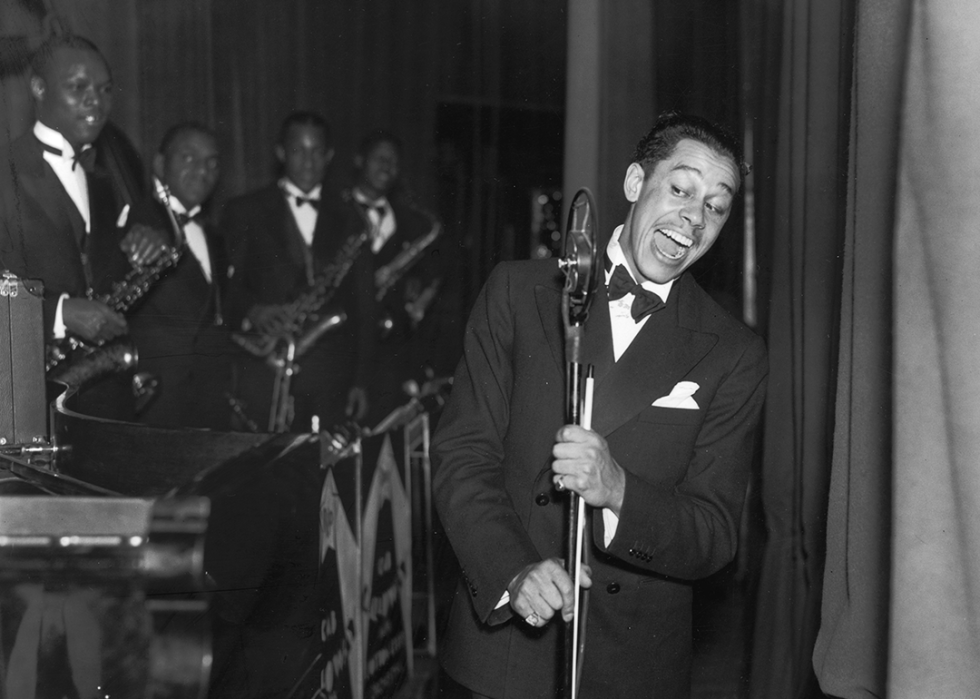
1931: 'Minnie the Moocher'
- Artist: Cab Calloway and His Orchestra
This jazz record was so successful that it continues to inspire bellows of "Hi-De-Hi-De-Hi-De-Ho" almost 90 years later. Moving beyond its most nonsensical and enduring line, the song is laden with cleverly concealed drug references. Words like "kokey" and phrases such as "kick the gong around" pertain to cocaine and opium, respectively.

1932: 'Brother, Can You Spare a Dime?'
- Artist: Bing Crosby
At the height of the Great Depression, E.Y. Harburg and Jay Gorney wrote this provocative anthem for a musical revue. When crooner Bing Crosby delivered his take, it became the bestselling record of its time. In the song, a beggar addresses the nation that took his job and shattered his dreams.
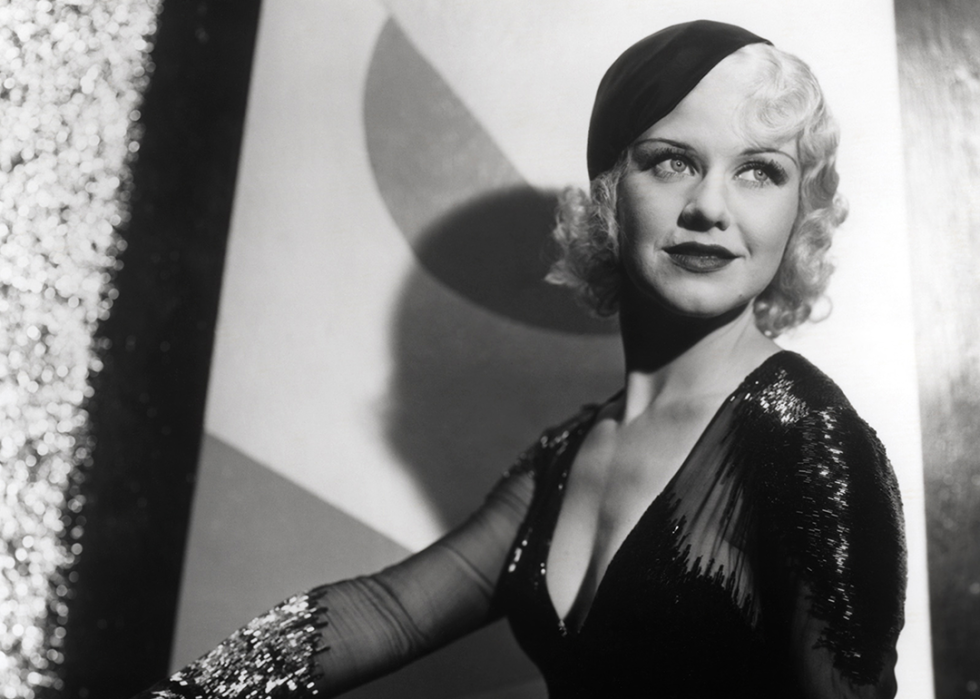
1933: 'The Gold Diggers' Song (We're in the Money)'
- Artist: Ginger Rogers (and chorus)
Despite its timeless catchphrase and upbeat melodies, this classic song and its somewhat controversial title emerged from a grim economic landscape. Recorded by Ginger Rogers and a chorus for the musical "Gold Diggers of 1933," it tells, "Ol' Man Depression, you are through, you done us wrong!" A slew of hit cover versions would follow.

1934: 'Winnsboro Cotton Mill Blues'
- Artist: Unknown
Facing overtime hours without extra pay, textile workers across the Southern states in 1934 went on strike. In Winnsboro, South Carolina, this song of protest and hardship emerged from the movement. Popular artists like Pete Seeger and Lead Belly would later record their own versions.

1935: 'When Hollywood Goes Black And Tan'
- Artist: Cleo Brown
Famous jazz and blues vocalist Cleo Brown dreamed of a more inclusive Hollywood in 1935. Singing over a catchy piano riff, Brown imagines legions of Black performers heading westward in pursuit of fame and fortune. The song's upbeat vibe does little to mask the harsh racial realities of its time.

1936: 'If You're a Viper'
- Artist: Stuff Smith
The cult film "Reefer Madness" was released the same year as this catchy jazz song, which took a far less precautionary approach. Using the parlance of the times, Stuff Smith & His Onyx Club Boys describe the life of a "viper," or an underground pot-smoker. Fats Waller later recorded his own version under "The Reefer Song."

1937: 'Doing the Reactionary'
- Artist: Harold Rome
Composer Harold Rome wrote this tune for "Pins and Needles," a hit musical that starred real-life garment workers and took a pro-union stance. Rife with reactionary overtones (hence the name), the song was sure to make a few millionaires squirm in their seats. In 1962, Barbra Streisand performed a rendition for the show's 25th-anniversary studio recording.
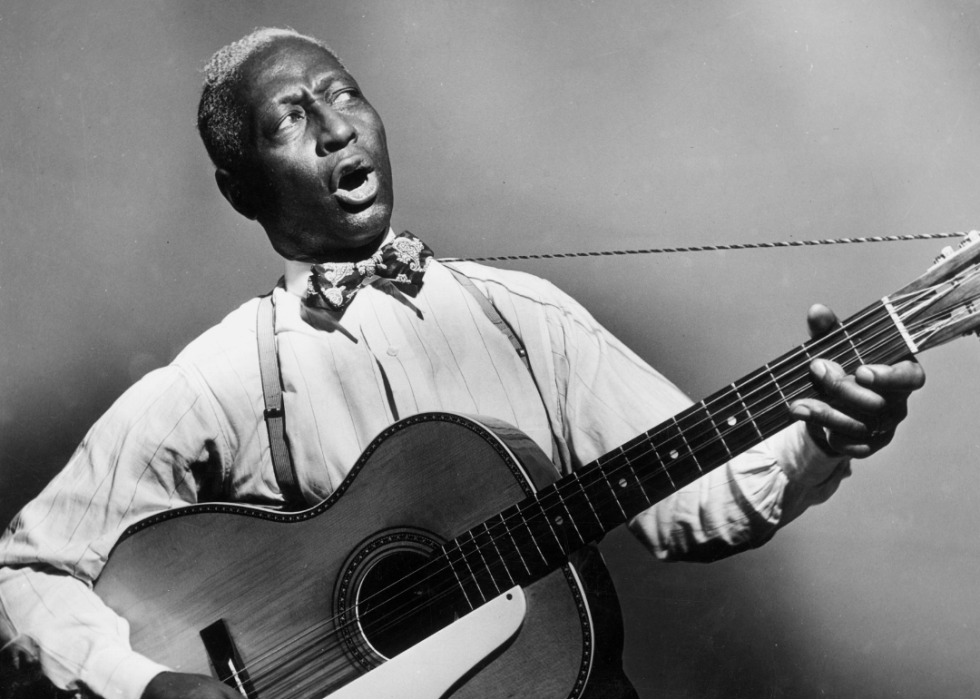
1938: 'The Bourgeois Blues'
- Artist: Lead Belly
After experiencing hostile segregation during a trip to Washington D.C., Lead Belly did just what a great blues singer would do: wrote a song about it. Like an early ancestor to viral media, it spread awareness of the privileged elite and their racist practices. Due to the song's political associations, Lead Belly was reportedly invited to perform it at socialist summer camps.
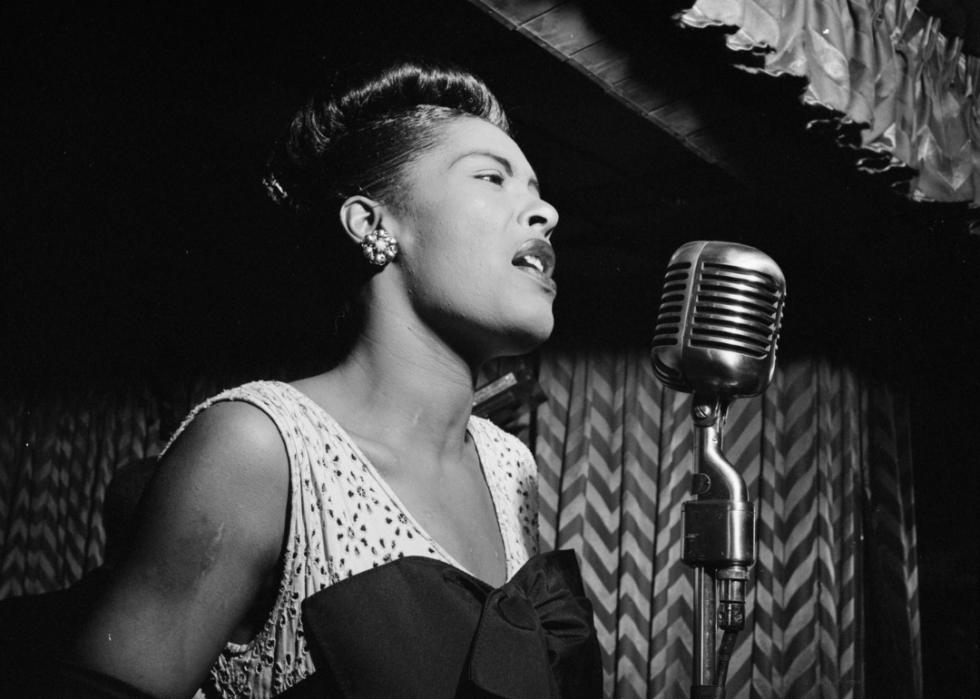
1939: 'Strange Fruit'
- Artist: Billie Holiday
Billie Holiday's biggest-selling recording is also one of history's most unsettling songs, with lyrics about "Black bodies swinging in the Southern breeze." It began as a protest poem by Abel Meeropol (writing under the pseudonym Lewis Allan), which Holiday and her team set to music. The song was so powerful and uncompromising in its depiction of lynchings that it was immediately banned by certain radio stations in the United States.
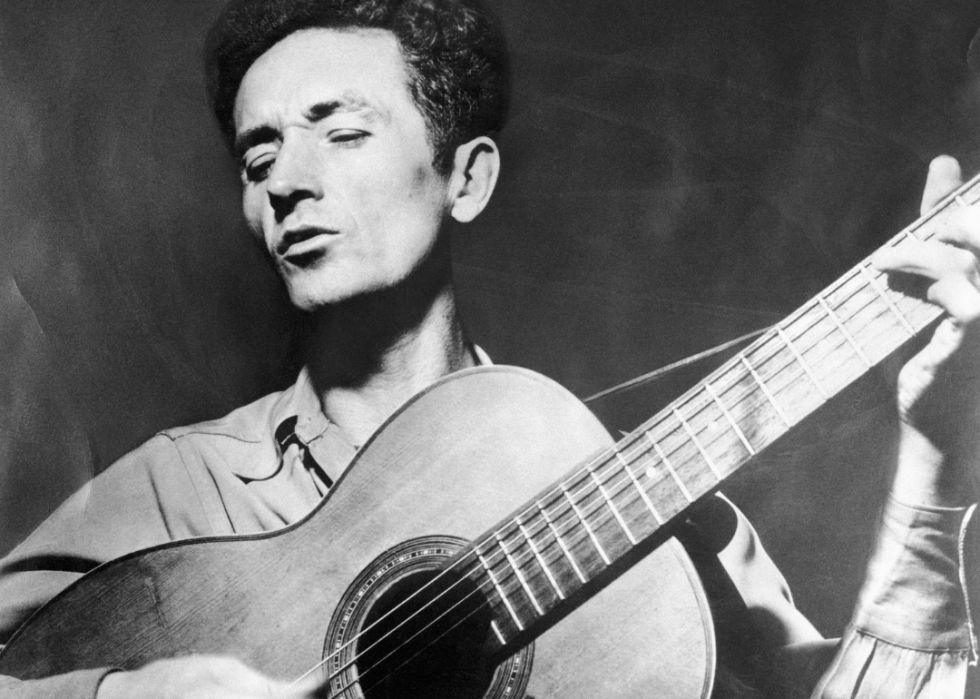
1940: 'This Land is Your Land
- Artist: Woody Guthrie
Folk hero Woody Guthrie penned this timeless tune in 1940, though it wasn't released until years later. Originally titled "God Blessed America for Me," it was composed as a sarcastic retort to Irving Berlin's overly patriotic "God Bless America." Some of Guthrie's original lyrics were far more radical than the ones still sung in classrooms today—including the final verse: "One bright sunny morning in the shadow of the steeple/ By the Relief Office I saw my people/ As they stood hungry, I stood there wondering if/ This land was made for you and me."
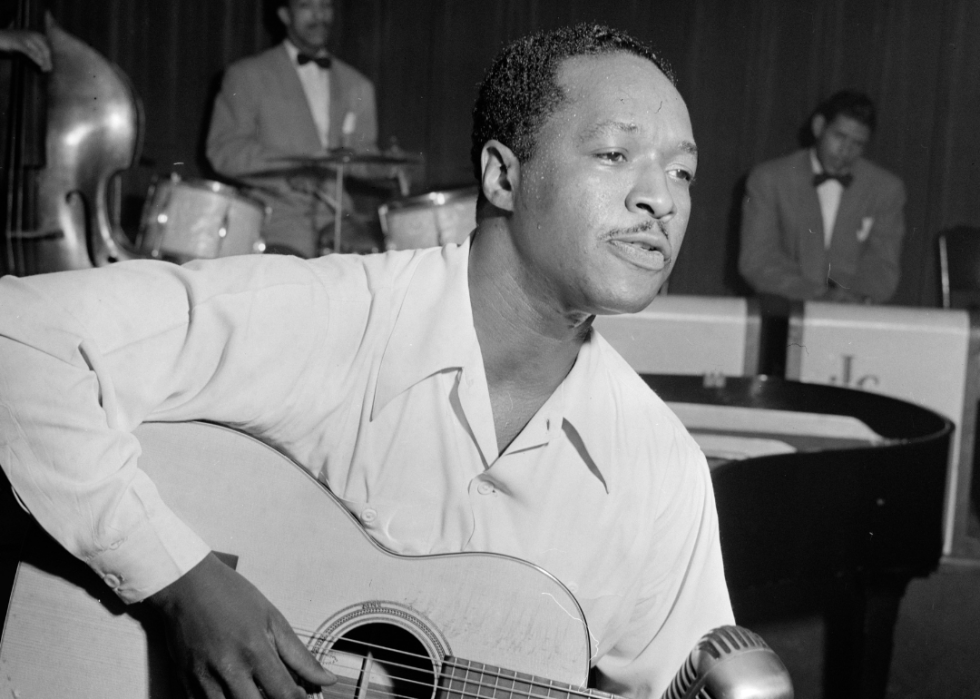
1941: 'Jim Crow Train'
- Artist: Josh White
Blues singer Josh White doesn't mince words in this poignant protest song about segregationist policies in the Jim Crow South. It was featured on White's 1941 album "Southern Exposure," alongside a number of other anti-segregationist songs. While the music was highly controversial in the Southern states, then-President Franklin Roosevelt liked it so much that he invited White to perform at the White House.
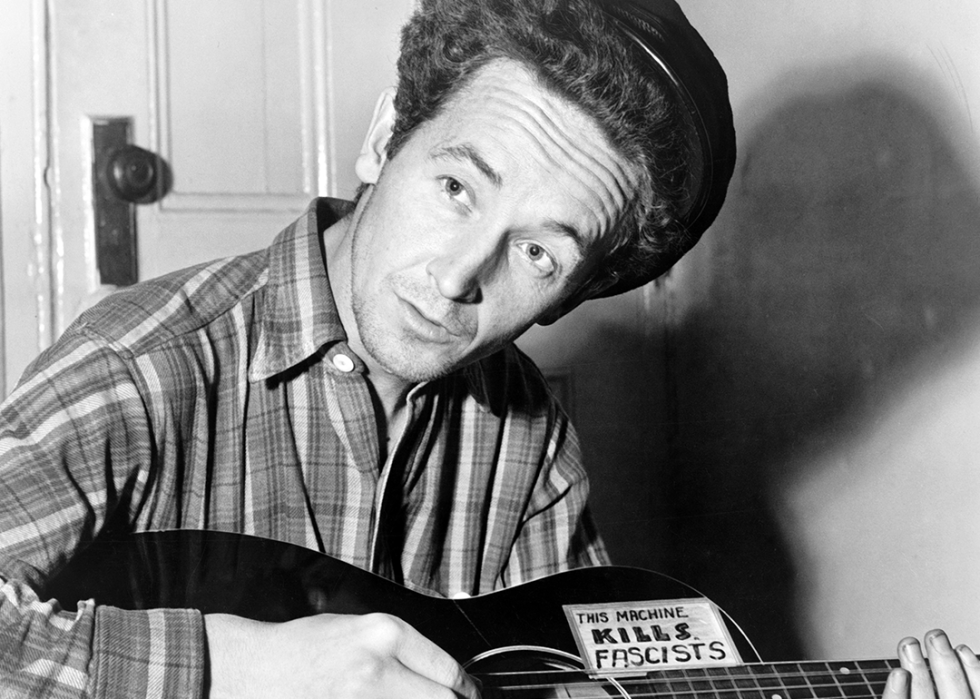
1942: 'All You Fascists Are Bound to Lose'
- Artist: Woody Guthrie
Adolf Hitler was vying for world domination by 1942, but that wasn't the only fascism Woody Guthrie had on his mind. Addressing topical issues like the poll tax and Jim Crow Laws, he imagines "people of every color, marching side to side" against any and all forms of oppressive hatred. Considering the message "this machine kills fascists" was scrawled across Guthrie's guitar, it's safe to say the artist meant every word.
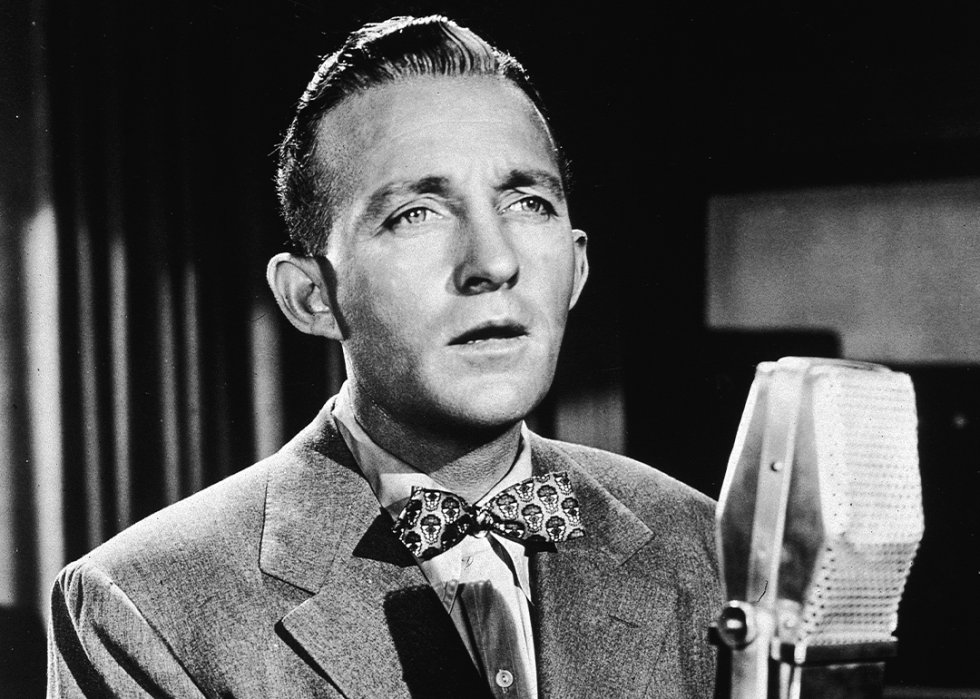
1943: 'I'll Be Home for Christmas'
- Artist: Bing Crosby
As hard as it is to imagine, this iconic holiday tune was somewhat controversial during the year of its release. Record executives worried the line "I'll be home for Christmas, if only in my dreams" would lower morale among the troops fighting overseas in World War II. The song was banned outright in England by the BBC for the very same reason.
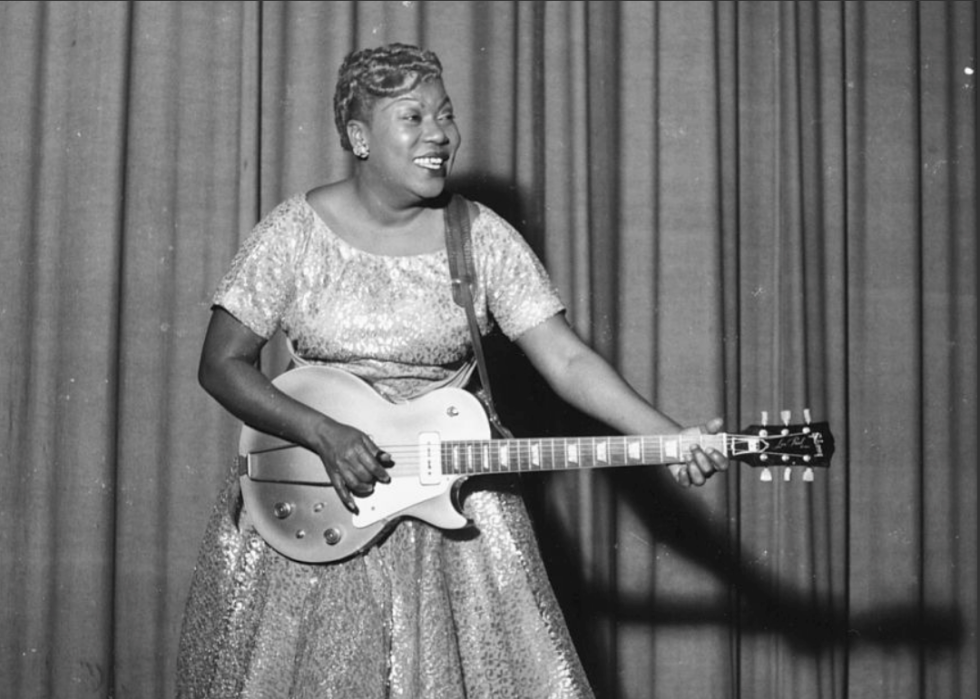
1944: 'Down by the Riverside'
- Artist: Sister Rosetta Tharpe
Updating a 19th-century spiritual for modern times, Sister Rosetta Tharpe dispenses with gospel references against a backdrop of big band instrumentals. The popular track was alternately titled "Ain't Gonna Study War No More," referencing its own chorus. During the Vietnam War era, it was resurrected as an ode to pacifism.
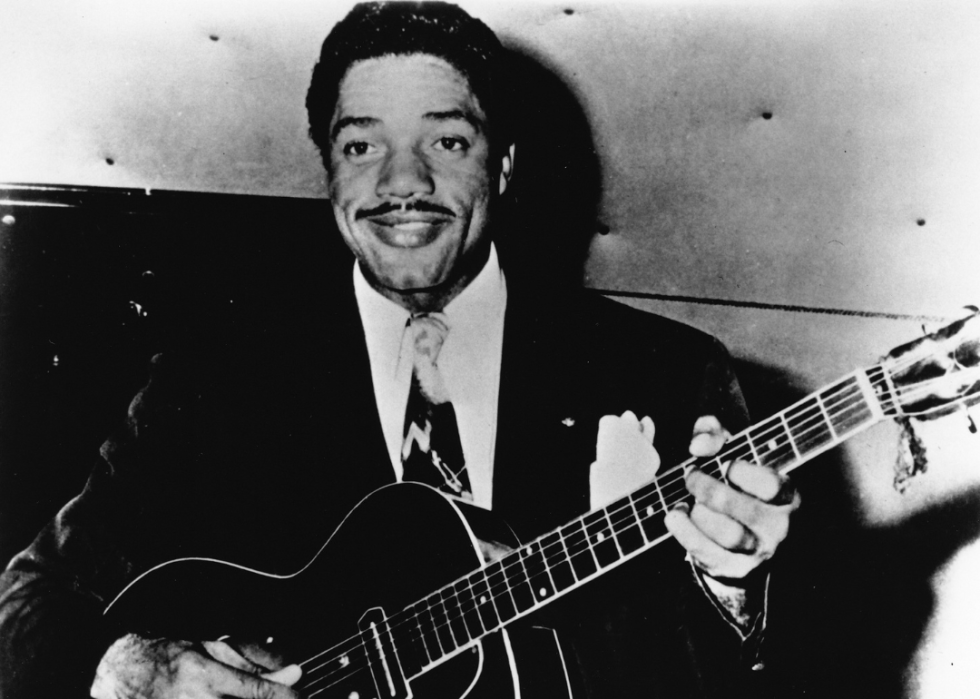
1945: 'Atomic Cocktail'
- Artist: Slim Gaillard Quartette
The world's first nuclear weapons were tested and deployed in 1945, paving the way for horrific destruction and this ironically languid song. Delivered in the vein of a jazzy lounge number, it features such lines as "You're small as a beetle or big as a whale…BOOM…atomic cocktail." For an extra touch of perhaps too-dark humor, it was released by Atomic Records.
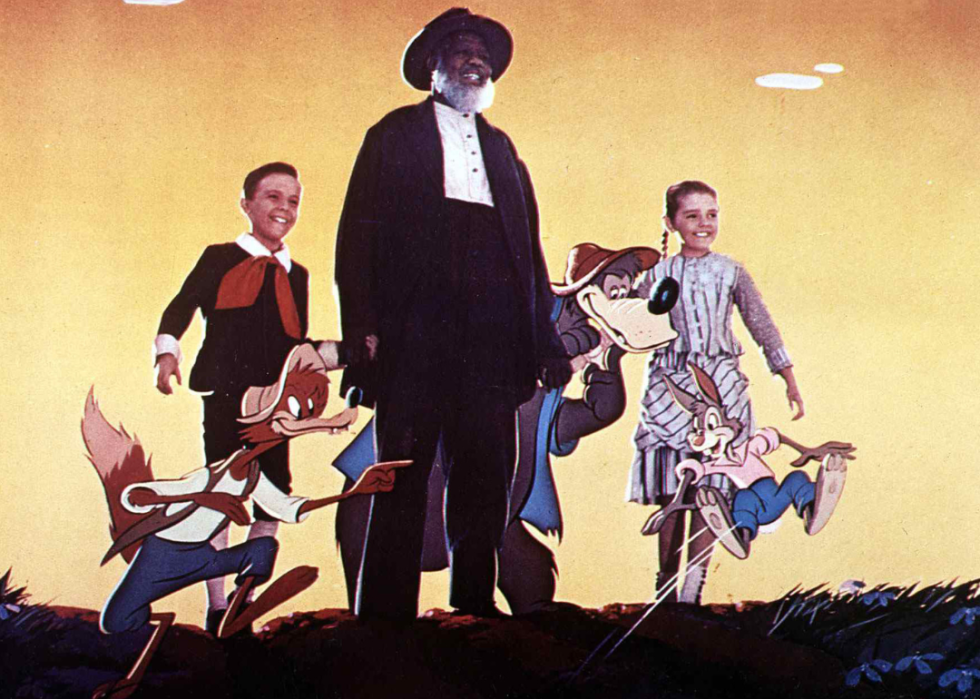
1946: 'Zip-a-Dee-Doo-Dah'
- Artist: James Baskett
Due to its tactless depiction of negative stereotypes, the Disney movie "Song of the South" has been at the heart of various controversies. The film's signature tune might be too catchy for history to ignore, but it nevertheless remains a scandalous reminder of the country's once-normalized racism. That's not to mention its origins as a minstrel show song.

1947: 'We Shall Overcome'
- Artist: Pete Seeger
Few protest songs are more inspiring and enduring than this one, which continues to be a part of numerous resistance movements. Originally published in 1901 under the name "I'll Overcome Someday," it was later adopted by tobacco workers during a labor dispute. Folk singer Pete Seeger put his own spin on the song in 1947, and it's been the stuff of epic unification ever since.
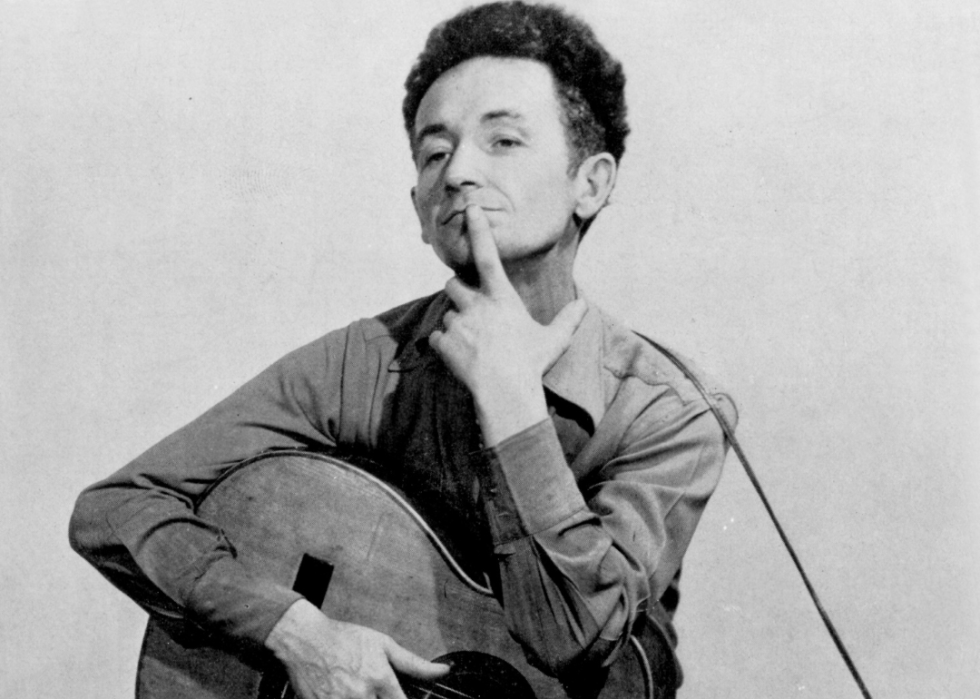
1948: 'Deportee (Plane Wreck at Los Gatos)'
- Artist: Woody Guthrie
American gadfly Woody Guthrie was at it again in 1948 when he wrote the lyrics to this oft-covered protest song. He was inspired to do so after hearing of a deadly plane crash that killed 28 unnamed migrant workers on their way back to Mexico. Composer Martin Hoffman provided the melody.
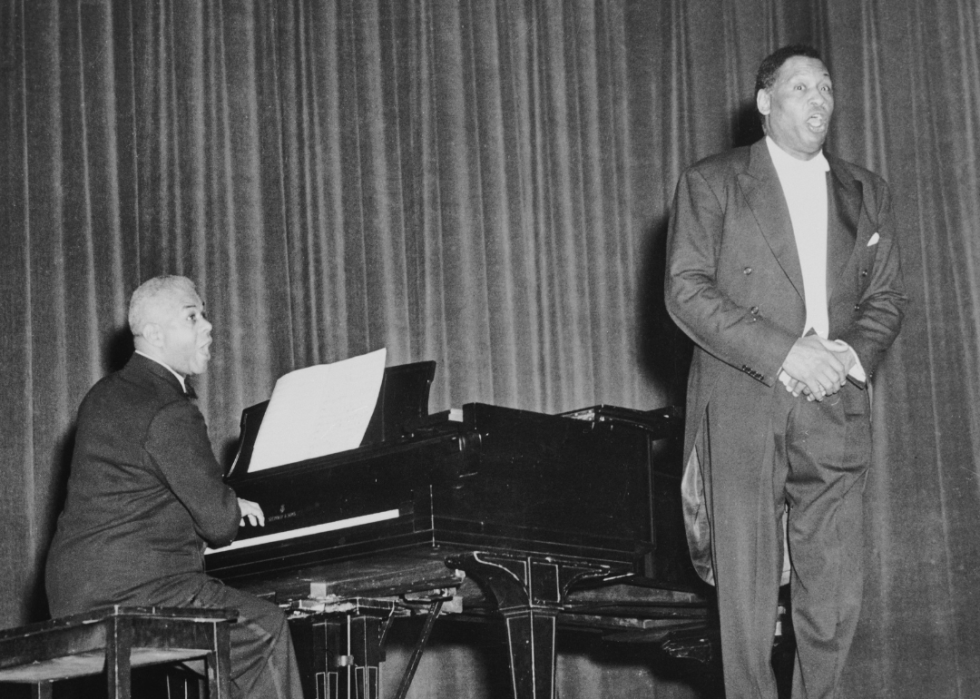
1949: 'No More Auction Block'
- Artist: Paul Robeson with Lawrence Brown
Performer and activist Paul Robeson began adopting spirituals as early as the 1920s. On the cusp of the Civil Rights Movement, he used the straightforward lyrics of this harrowing song to take a stand against rampant racism and injustice. Bob Dylan would later employ a very similar melody on his iconic protest tune "Blowin' in the Wind."
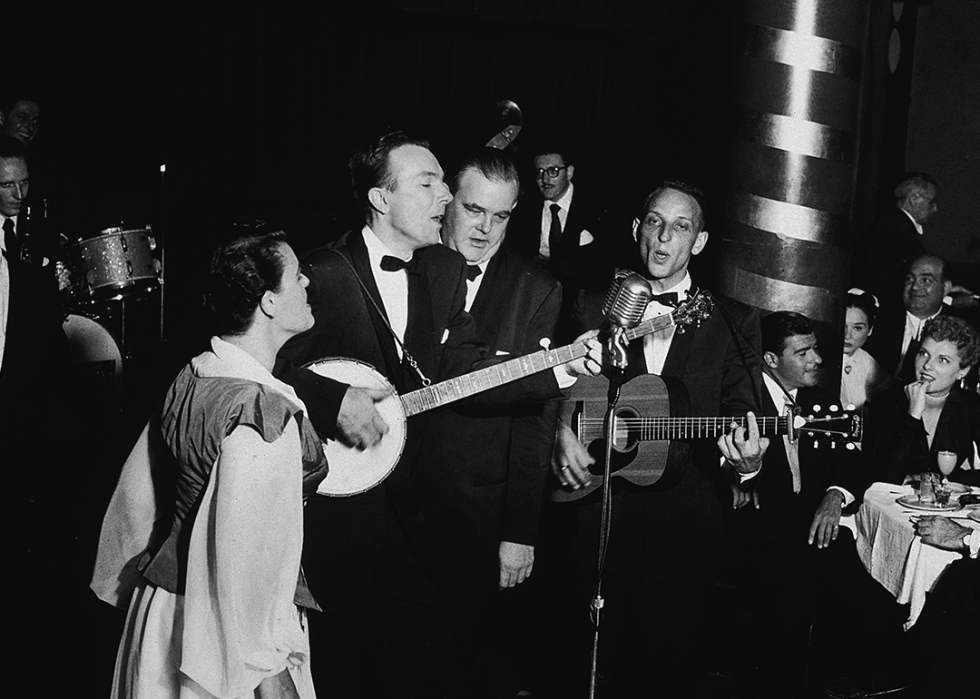
1950: 'The Hammer Song'
- Artist: The Weavers
Pete Seeger and Lee Hays wrote this left-leaning song in 1949 and performed it for communist leaders at a testimonial dinner. Their concurrent folk group, the Weavers, released a new and more popular version the following year. For songs like this one and other progressive maneuvers, Seeger and Hays were later called to testify for reported communist ties.
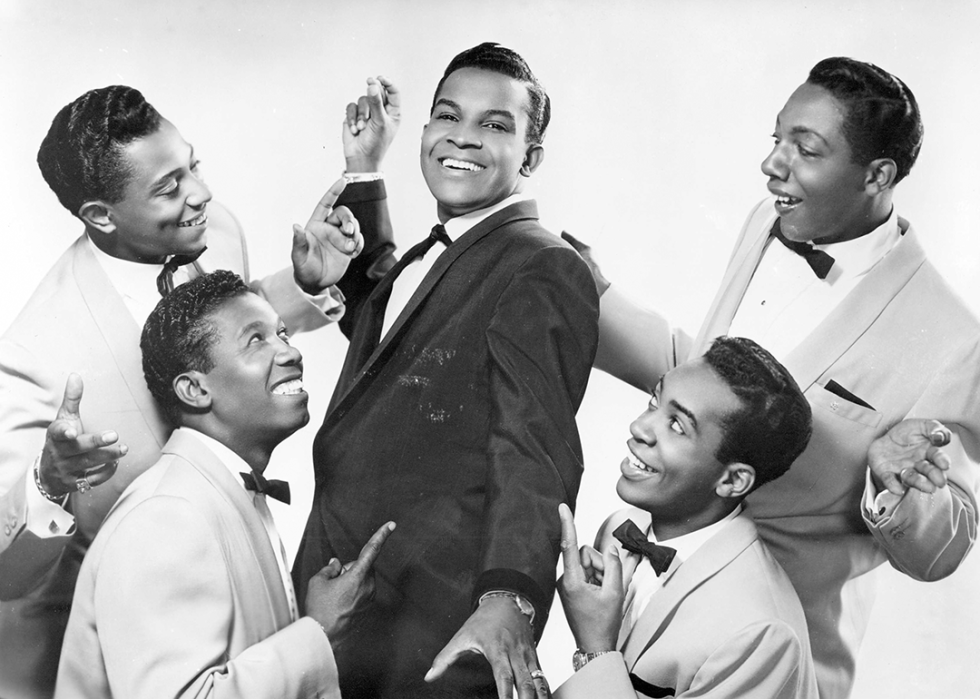
1951: 'Sixty Minute Man'
- Artist: Billy Ward and his Dominoes
A bona fide precursor to the burgeoning rock 'n' roll genre, this naughty number from Billy Ward boasts of his bedroom exploits. Thanks to its double entendre and risque lyrics (for the time), the novelty song was banned on certain radio stations. Country duo Hardrock Gunter and Roberta Lee recorded their own version that very same year.
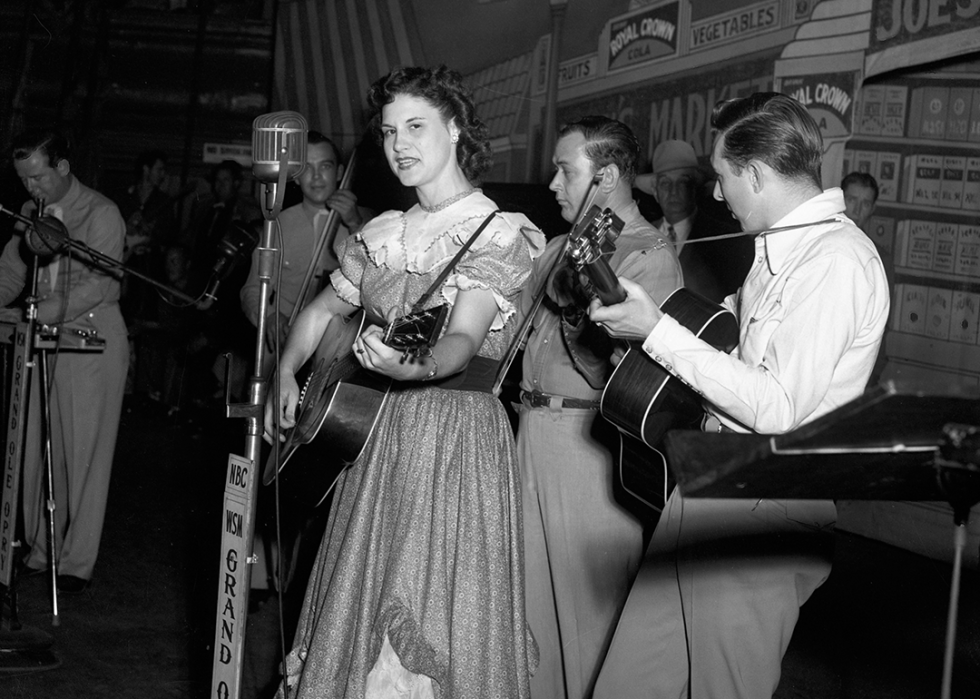
1952: 'It Wasn't God Who Made Honky Tonk Angels'
- Artist: Kitty Wells
A musical rebuttal to Hank Thompson's "The Wild Side of Life," this controversial song helped make Kitty Wells one of the first women stars in country music. Employing a similar melody to Thompson's hit, she argued that cheating husbands were the motivating factor behind cheating wives. Wells was banned from performing the song on the NBC network and Grand Ole Opry radio broadcast; neither did anything to stop the tune from soaring up the charts.
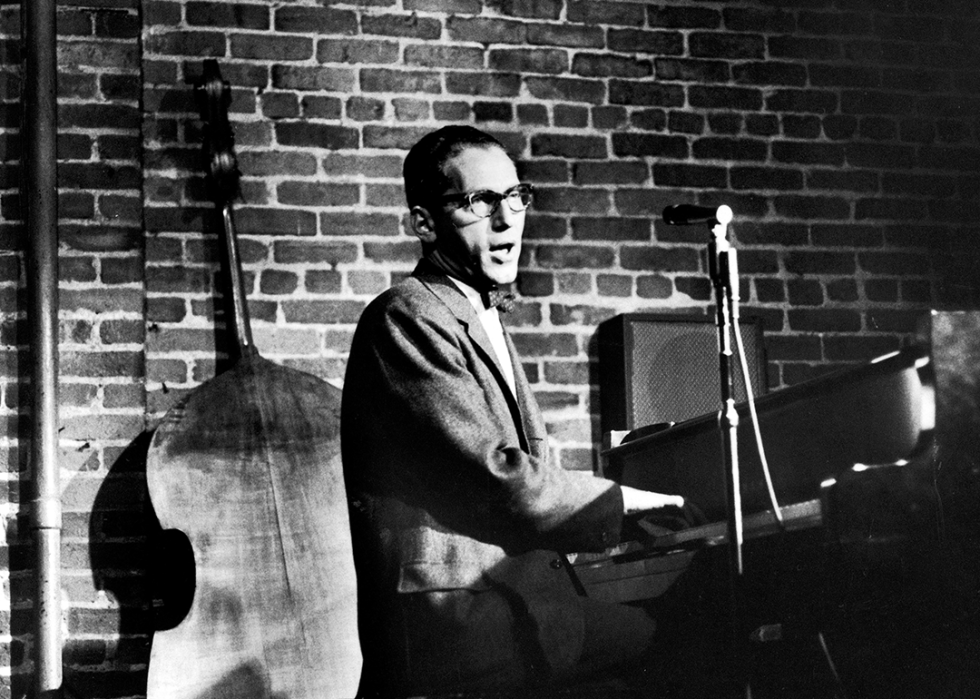
1953: 'The Old Dope Peddler'
- Artist: Tom Lehrer
The talented Tom Lehrer unleashed his particular brand of satirical music upon the world in 1953 with the release of his debut album. Songs like "The Old Dope Peddler"—which puts a humorous spin on drug-dealing—created instant scandals due to their edgy subject matter. It was merely the beginning of a long and controversial career for Lehrer.
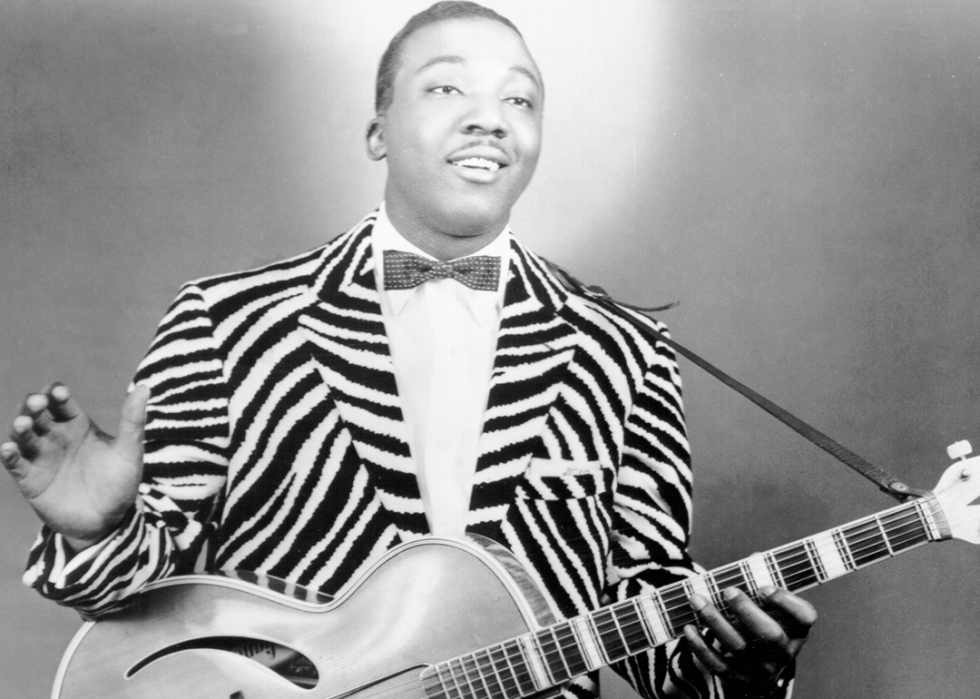
1954: 'Eisenhower Blues'
- Artist: J.B. Lenoir
Chicago blues guitarist and singer J.B. Lenoir didn't shy away from political subject matter throughout his career. Annoyed with the government for taxing him out of his hard-earned money, the artist wrote this charged tune for Parrot Records. When controversy ensued, label executive Al Benson forced Lenoir to rerecord the song under the name "Tax Paying Blues."
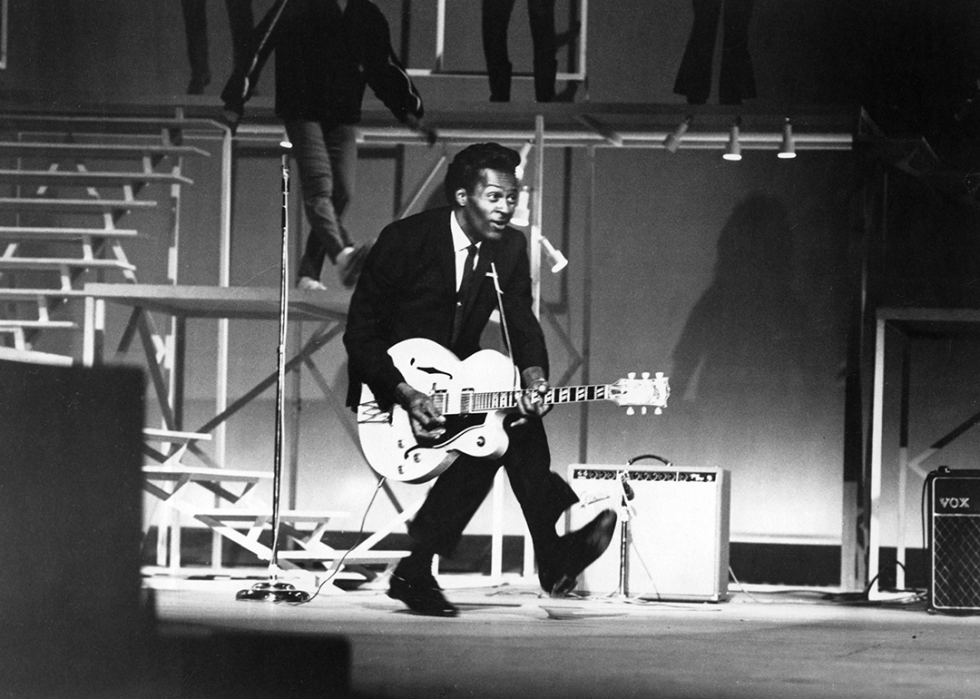
1955: 'Maybellene'
- Artist: Chuck Berry
Rife with clever wordplay and a dexterous combination of styles, Chuck Berry's first major hit single was a rock 'n' roll revolution in the making. While the lyrics weren't necessarily subversive, Berry's skin color and influential sound were enough to generate a degree of controversy. Mainstream music would never be quite the same.
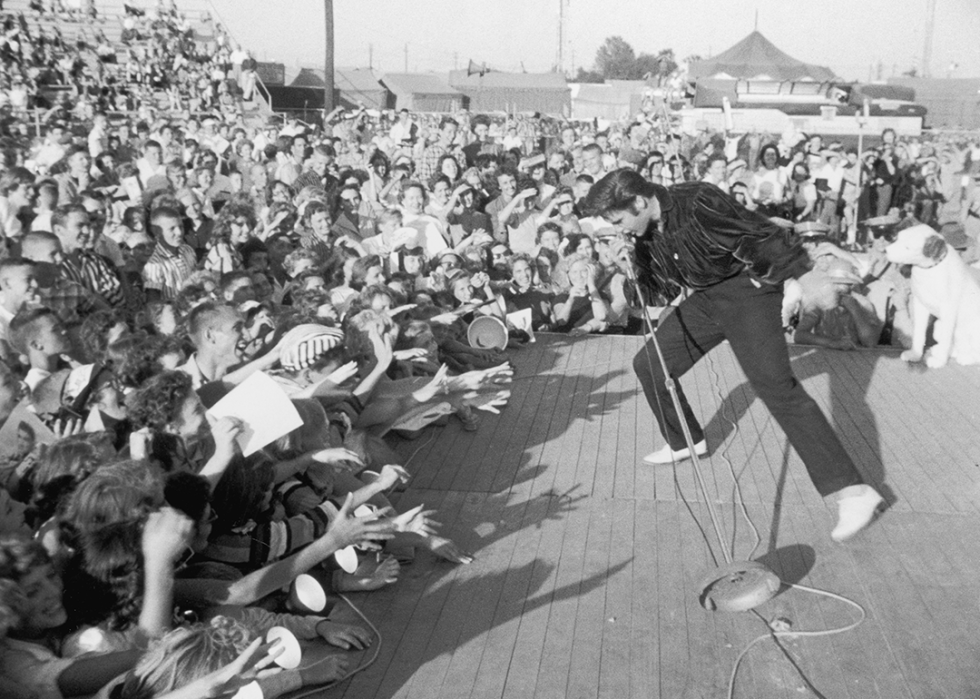
1956: 'Hound Dog'
- Artist: Elvis Presley
The same year he broke out across America, Elvis Presley found himself at the center of a major controversy. While performing his version of Big Mama Thornton's "Hound Dog" on "The Milton Berle Show," Presley swung his guitar aside and gyrated his pelvis before a legion of screaming fans. As overblown the scandal might seem in retrospect, his rebellious gesture and its adjoining shockwave were every bit as impressionable as Elvis' detractors might have feared.
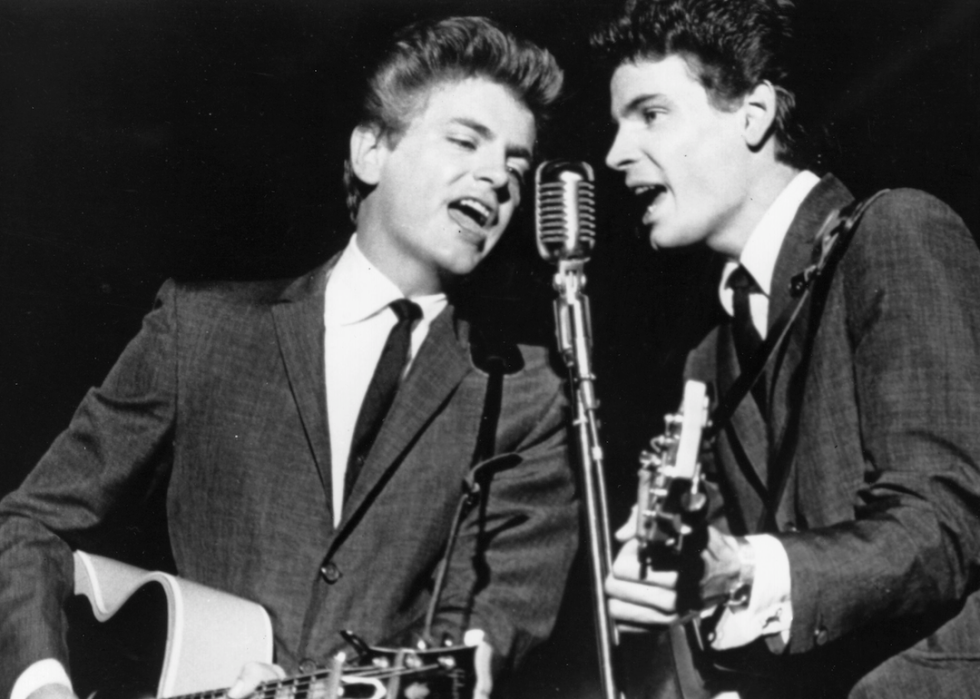
1957: 'Wake Up Little Susie'
- Artist: The Everly Brothers
This seemingly harmless tune finds a teenage couple fearing punishment after they fall asleep during a movie. In an ironic twist of fate, the song was indeed punished (i.e., banned) by several radio stations. It nevertheless gave the Everly Brothers their first #1 hit.
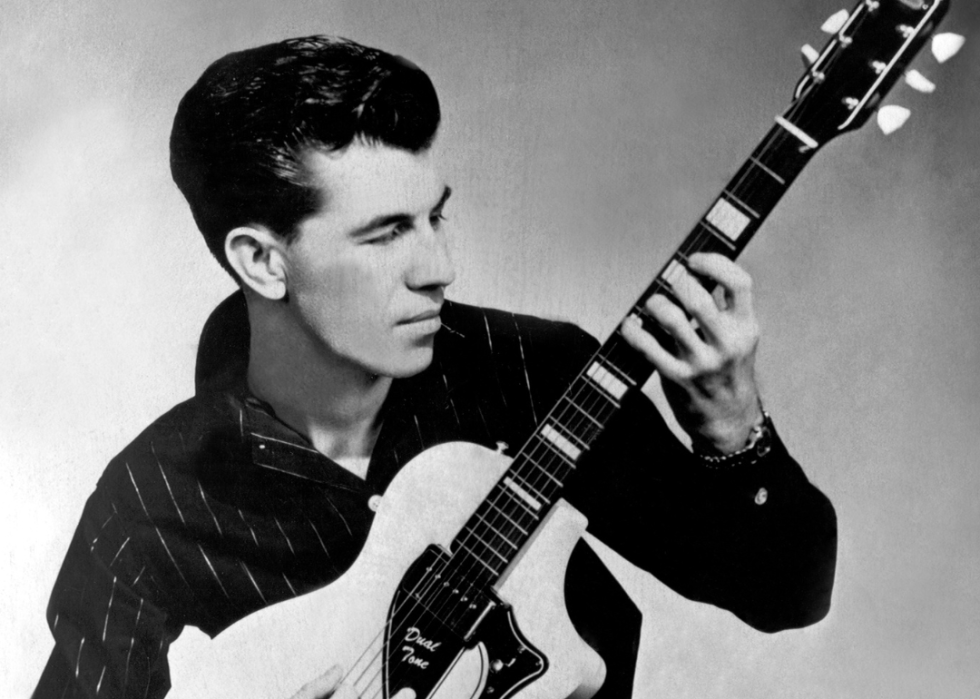
1958: 'Rumble'
- Artist: Link Wray
In 1958, the fuzzed-out and reverb-drenched tone of Link Wray's guitar was all it took to get the old guard up in arms. Fearing that the suggestive title and sexy swagger of "Rumble" might incite gang violence, New York and Boston radio stations kept it off the airwaves. Artists like Jimmy Page and Iggy Pop point to this particular instrumental as a major influence.
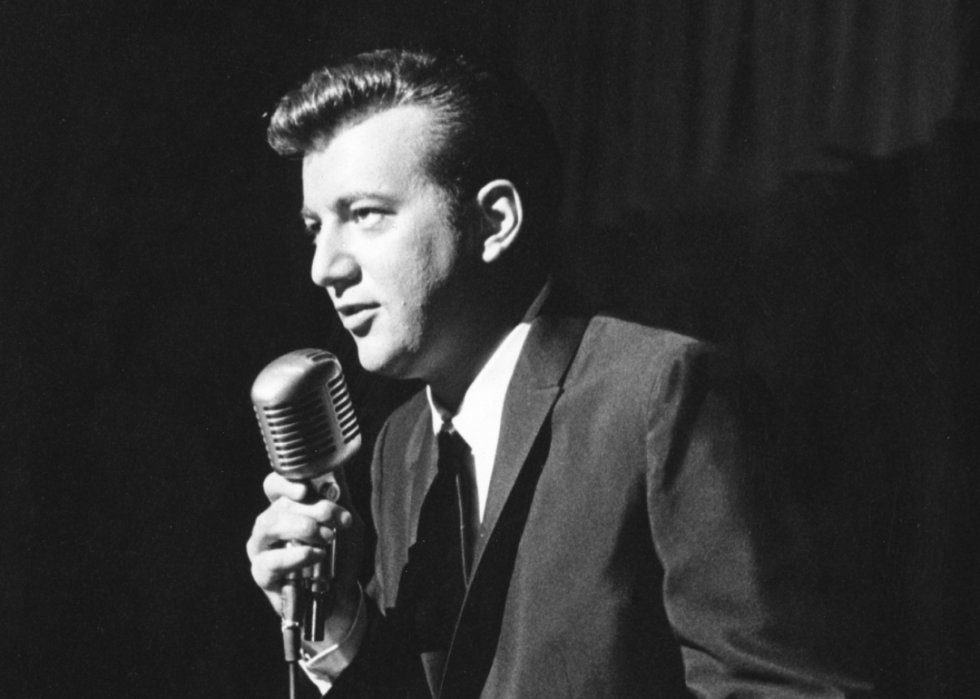
1959: 'Mack the Knife'
- Artist: Bobby Darin
Modernizing an old musical number by way of a jazzy swing beat, Bobby Darin delivered this #1 hit in 1959. Beyond the catchy melodies are dark lyrics about bodies "oozin' life" and cement bags "just a droopin' on down." Both New York's WABC radio station and the BBC banned the song, fearing it would inspire real-life knife attacks.
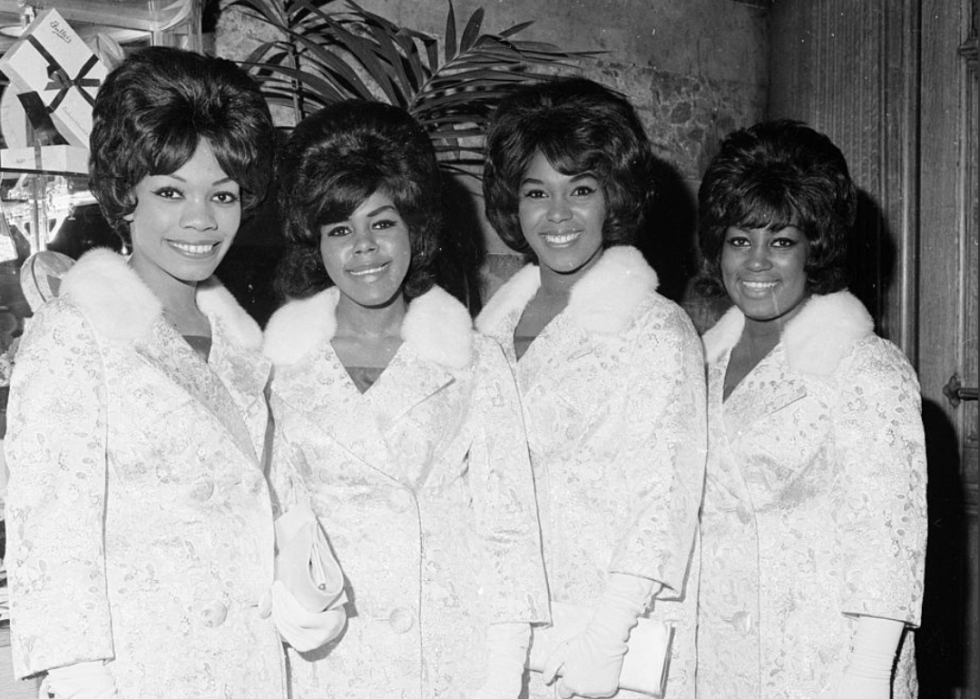
1960: 'Will You Still Love Me Tomorrow'
- Artist: The Shirelles
The first #1 single to come from an all-Black woman group, "Will You Still Love Me Tomorrow" is another song that might seem controversy-proof to today's audiences. However, its sexual innuendos were enough to get it banned from radio stations back in 1960. Numerous cover versions would follow, including one from original co-writer Carole King.
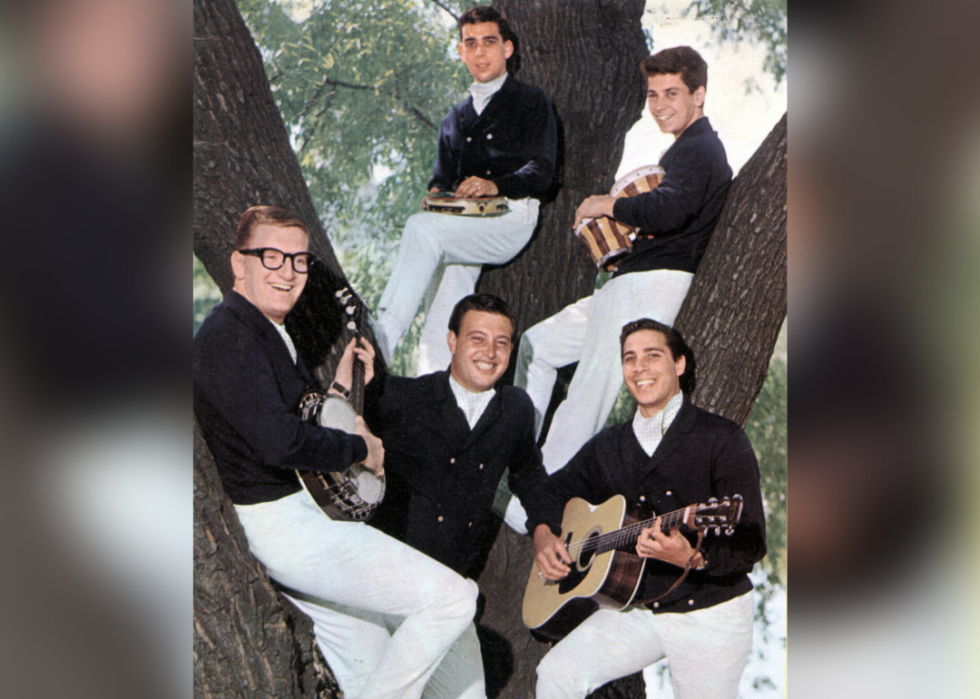
1961: 'The Lion Sleeps Tonight'
- Artist: The Tokens
It would take decades for the true controversy to catch up to this ubiquitous pop song, which earned doo-wop outfit the Tokens its only #1 Billboard hit. Like so many others before and after, the group actually stole the song, failing to acknowledge it was originally created by a Zulu migrant worker named Solomon Linda. In 2006, Linda's descendants sued Disney over royalties for the song's use in "The Lion King" and walked away with an undisclosed sum.
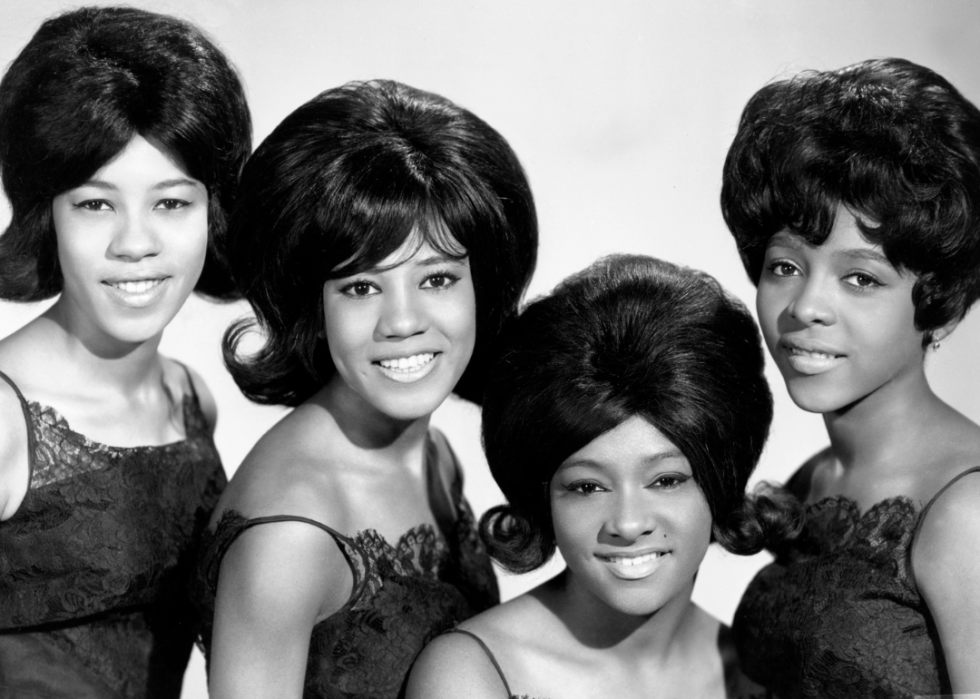
1962: 'He Hit Me (And It Felt Like a Kiss)'
- Artist: The Crystals
Some controversial tunes seem downright mild in retrospect, but not this one from the Crystals. Featuring a title that pretty much says it all, the song takes a gravely misguided approach to the subject of domestic abuse. To make a creepy thing even creepier, future convicted second-degree murderer Phil Spector produced the track.

1963: 'A Hard Rain's a-Gonna Fall'
- Artist: Bob Dylan
Bob Dylan's early folk albums are jam-packed with so many great protest songs that it's hard to choose just one. That said, the apocalyptic tone of "A Hard Rain's a-Gonna Fall" gives it an element of perennial prescience in today's fragile landscape. Rumors persist (thanks in part to Dylan himself) that the song was directly inspired by the Cuban missile crisis, but he reportedly performed it live a month before the nuclear showdown took place.
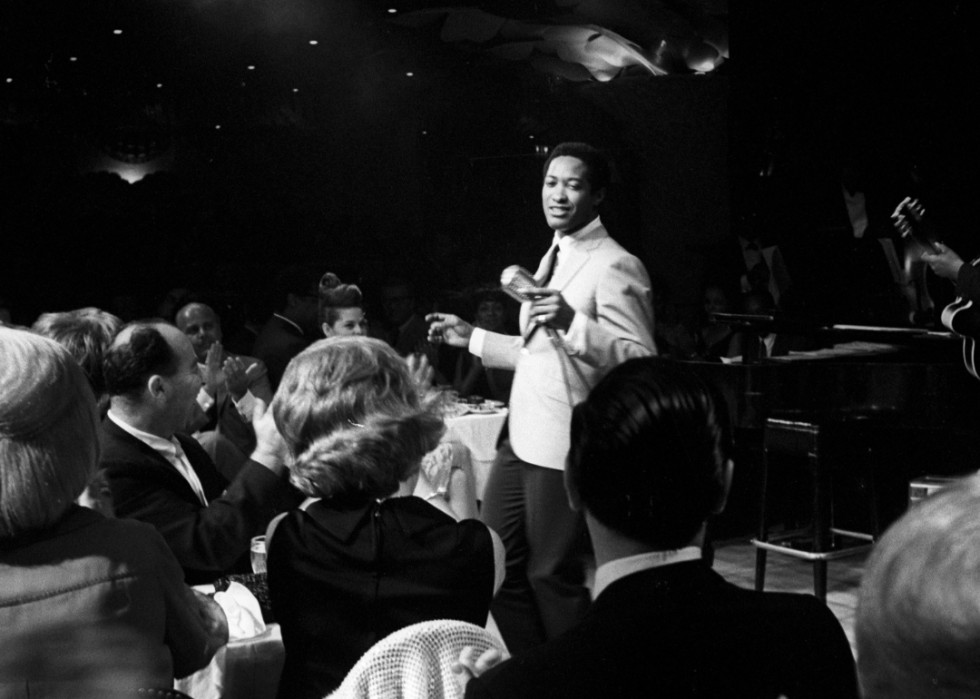
1964: 'A Change is Gonna Come'
- Artist: Sam Cooke
This bone-chilling classic was reportedly written just a few months after Sam Cooke and his entourage were turned away from a Holiday Inn in Shreveport, Louisiana. The song was also said to be inspired by Bob Dylan's civil rights anthem "Blowin' in the Wind," which Cooke often performed live. Delivered with palpable passion, it punctuates brooding despair with moments of hope and inspiration.
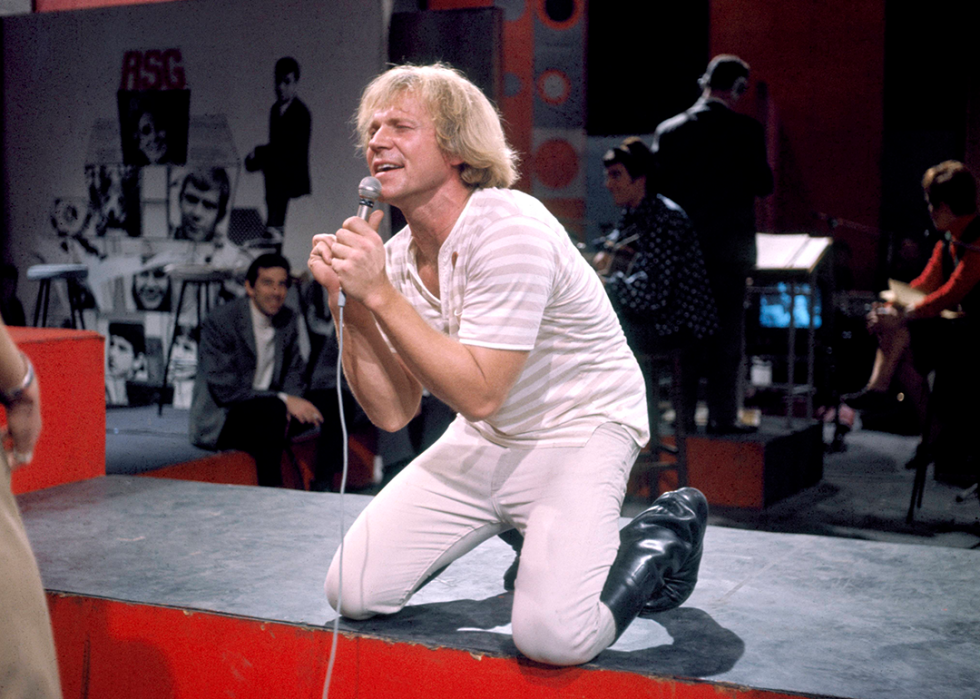
1965: 'Eve of Destruction'
- Artist: Barry McGuire
Condemning hatred and violence the whole world over, this veritable hit was widely perceived as a protest song against the Vietnam War. While the lyrics are devoid of curse words or drug references, they were nevertheless deemed obscene by many U.S. radio stations. Lines such as "you're old enough to kill but not for votin'" continue to resonate.
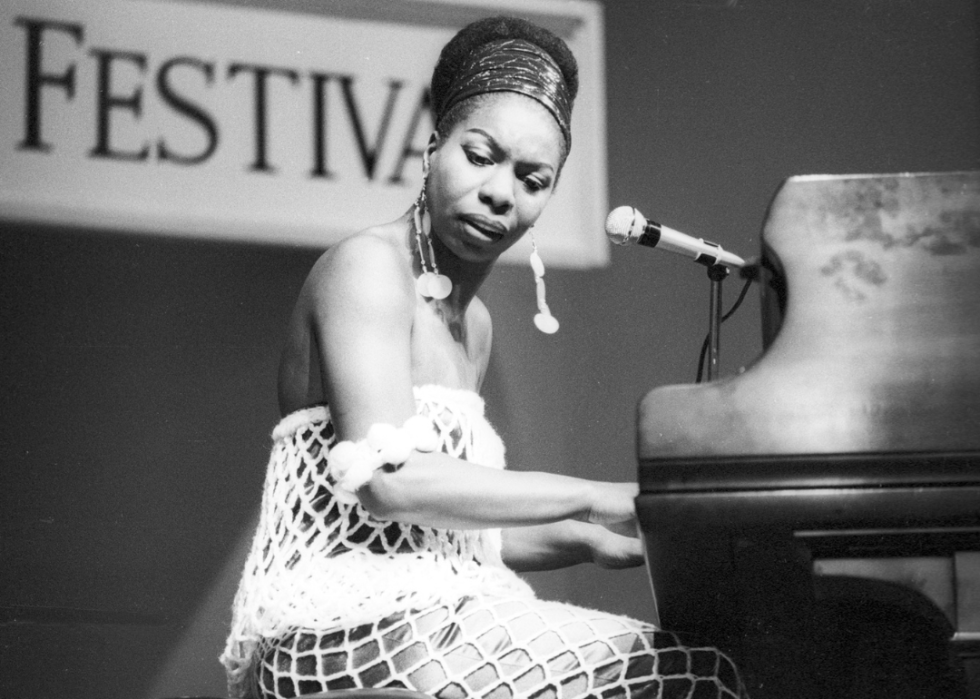
1966: 'Four Women'
- Artist: Nina Simone
In telling the story of four Black women, music legend Nina Simone conjured up a storm of vivid associations. Bringing slavery, trauma, and exploitation into the fold, she unleashes a cathartic howl. A legion of young and inspired women was listening.
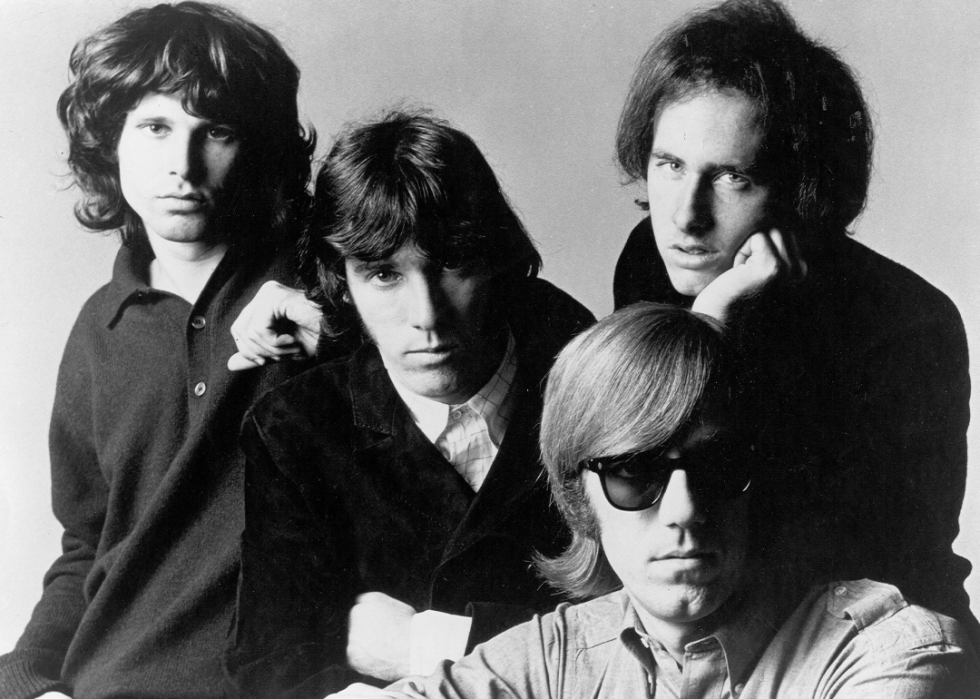
1967: 'Light My Fire'
- Artist: The Doors
It's no secret 1967 represented a year of cultural upheavals, but someone forgot to tell "The Ed Sullivan Show." Upon booking the Doors for a live performance of "Light My Fire," producers requested the word "higher" be replaced with "better." Lead singer Jim Morrison forged ahead with the original lyrics and got the group banned from the show posthaste.
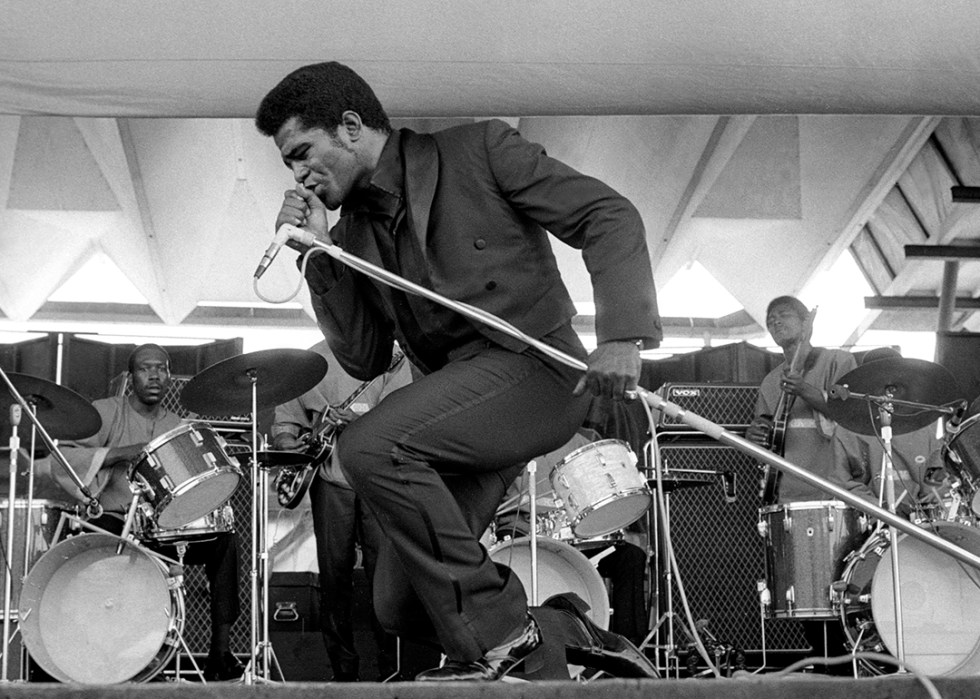
1968: 'Say it Loud (I'm Black and I'm Proud)'
- Artist: James Brown
Keeping both feet squarely in the funk arena, James Brown imparted with this socially conscious anthem in 1968. Released on an album of the same name, it addressed issues of racism and the ongoing need for Black empowerment. Brown rallied behind Democratic presidential nominee Hubert Humphrey that same year.
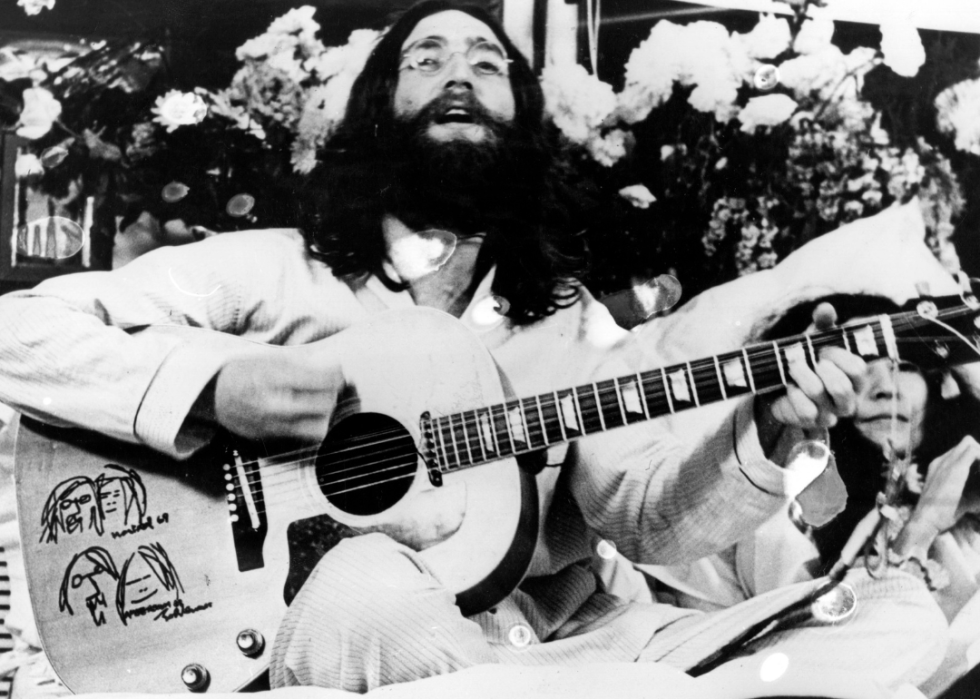
1969: 'Give Peace a Chance'
- Artist: Plastic Ono Band
John Lennon coined the phrase "Give peace a chance" during a highly publicized bed-in, and then he recorded this tune with Yoko Ono on the event's final day. Released amid the Vietnam War, it delivered a raw and powerful plea for love and understanding. It also gave Lennon his first #1 single outside of the Beatles.
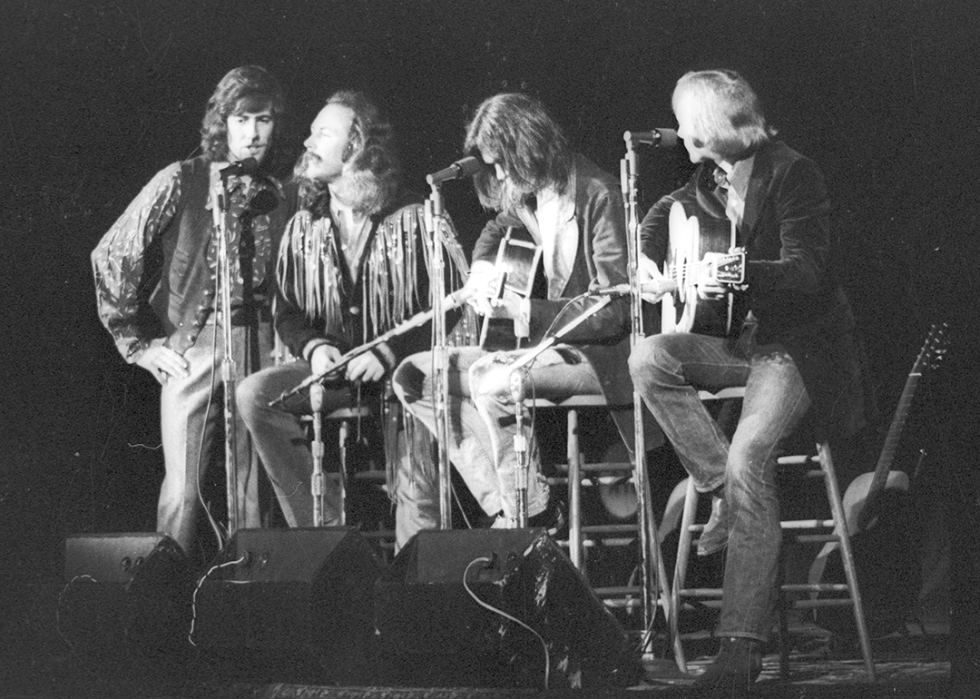
1970: 'Ohio'
- Artist: Crosby, Stills, Nash & Young
Four unarmed student protestors were shot and killed by Ohio National Guard members in 1970, and an angry Neil Young wanted to do something about it. The result was this iconic protest song from CSNY, which calls out former President Richard Nixon by name and tries to invoke a revolution. Due to its blatant political overtones, the song was banned by numerous mainstream AM radio stations.
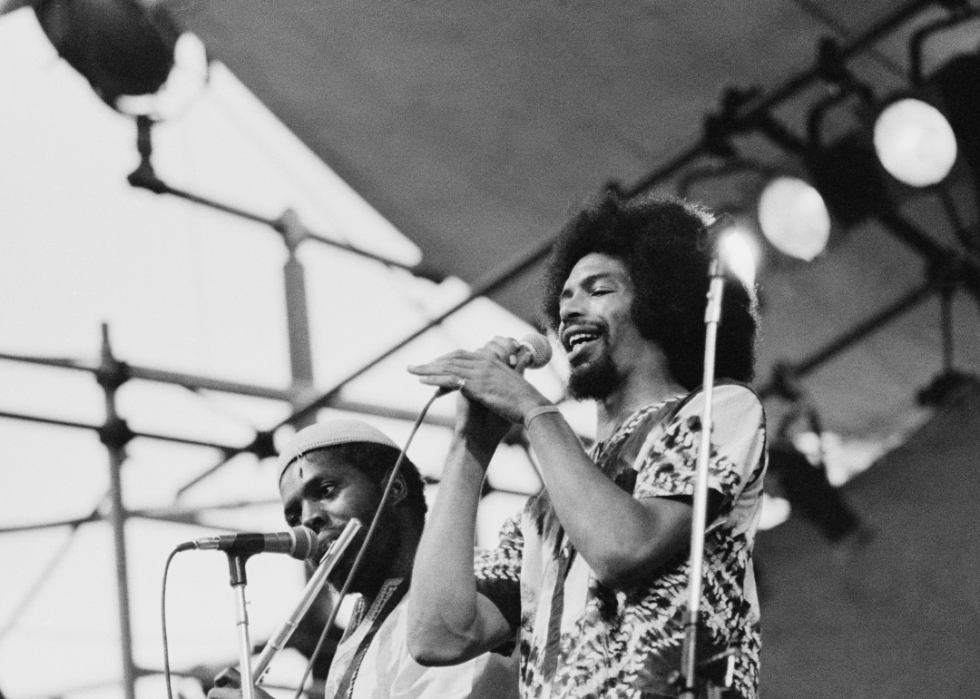
1971: 'The Revolution Will Not Be Televised'
- Artist: Gil Scott-Heron
Inspired by a popular slogan from the 1960s Black Power movement, Gil Scott-Heron first delivered this radical spoken-word poem in 1970. A year later, he brought a full backing band and rerecorded it as a B-side to his first single. At its core is a call for grassroots activism and a warning against media brainwashing, two things that are as relevant now as they ever were.
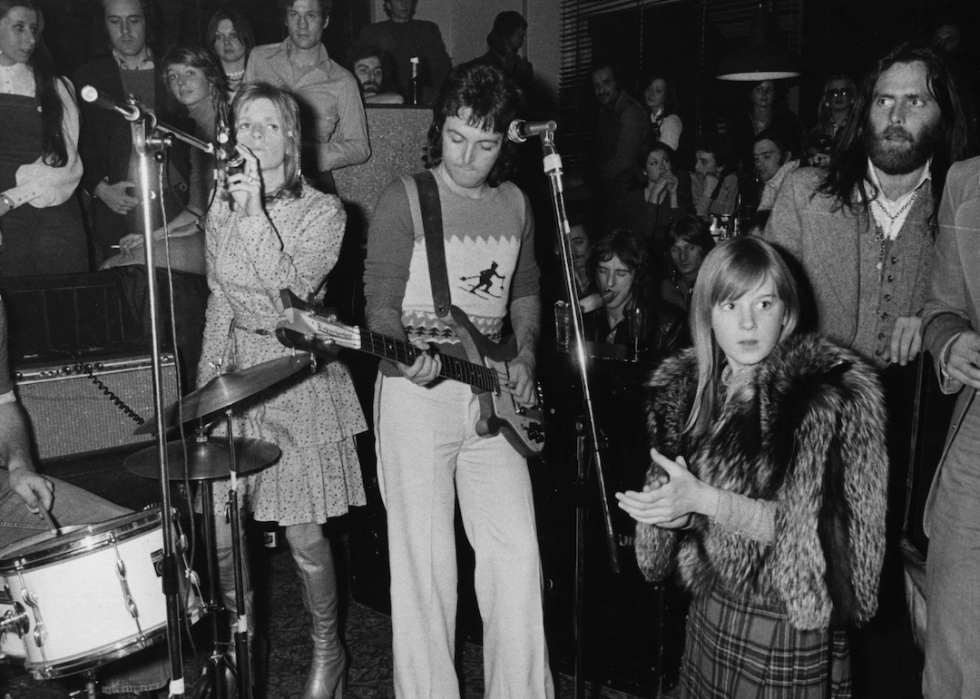
1972: 'Give Ireland Back to the Irish'
- Artist: Wings
John Lennon might have been the designated bad boy among former Beatles, but ex-bandmate Paul McCartney also experienced his fair share of controversy. Reacting to the events of "Bloody Sunday," he and his wife, Linda, churned out this political tune in about a month's time. It was greeted with a blanket broadcast ban in the United Kingdom, where relations with Northern Ireland remained a highly sensitive subject.

1973: 'Living for the City'
- Artist: Stevie Wonder
Child prodigy-turned-Motown legend Stevie Wonder began exploring deeper themes in the early 1970s, as evidenced by this illustrative song. Featuring unforgettable hooks and a perceptible narrative about inner-city life, it's considered one of the earliest soul music hits to tackle systemic racism head-on.
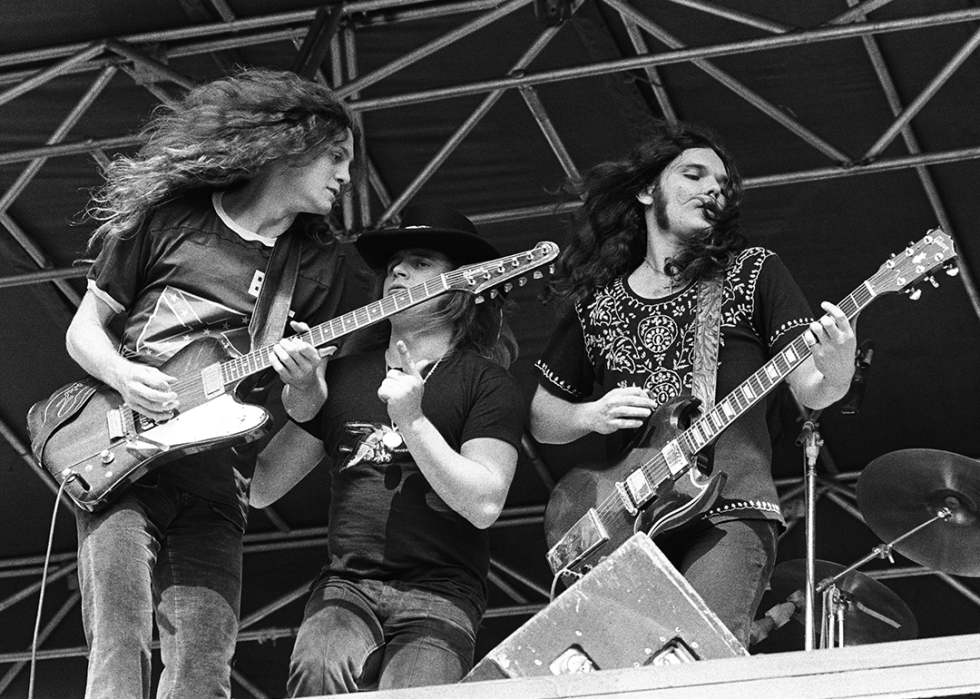
1974: 'Sweet Home Alabama'
- Artist: Lynyrd Skynyrd
A radio staple to this day, Lynyrd Skynyrd's Southern ode takes shots at Neil Young and makes references to racist Gov. George Wallace. However, those who think the band was siding with Wallace's politics or legitimately feuding with Young would be mistaken. Fun fact: None of the song's three writers were actually from Alabama.
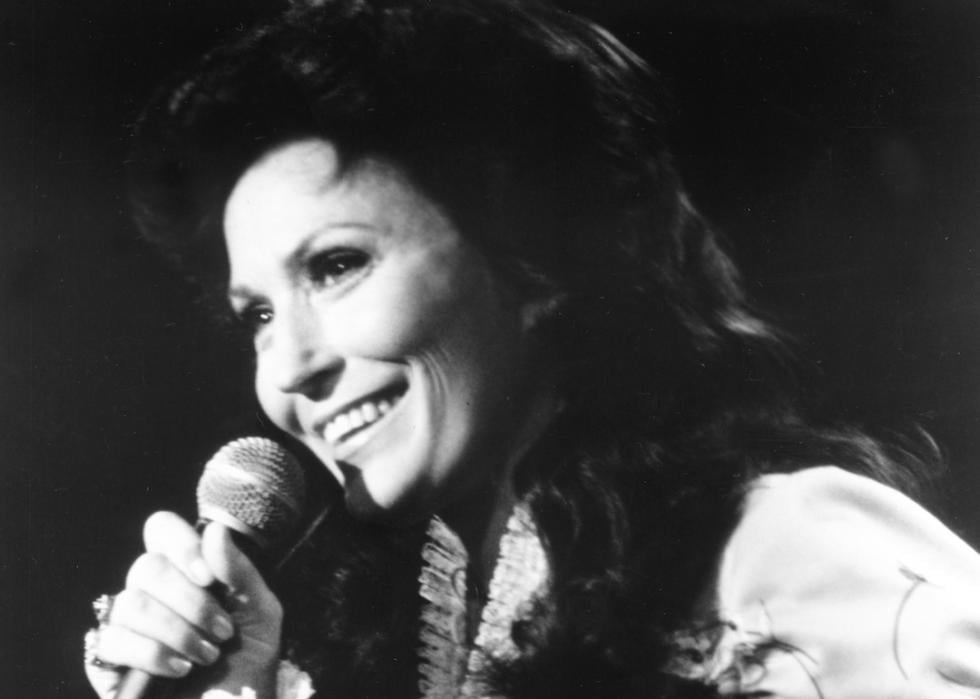
1975: 'The Pill'
- Artist: Loretta Lynn
Taking a bold and semi-comical approach to birth control, country singer Loretta Lynn released the most controversial hit of her career. Belting lines like "this incubator is overused," Lynn encouraged married women to take the pill if they wanted to stop having babies. Country radio stations, and at least one Kentucky preacher, wasted no time in either banning or condemning the song, which only helped to fuel sales.
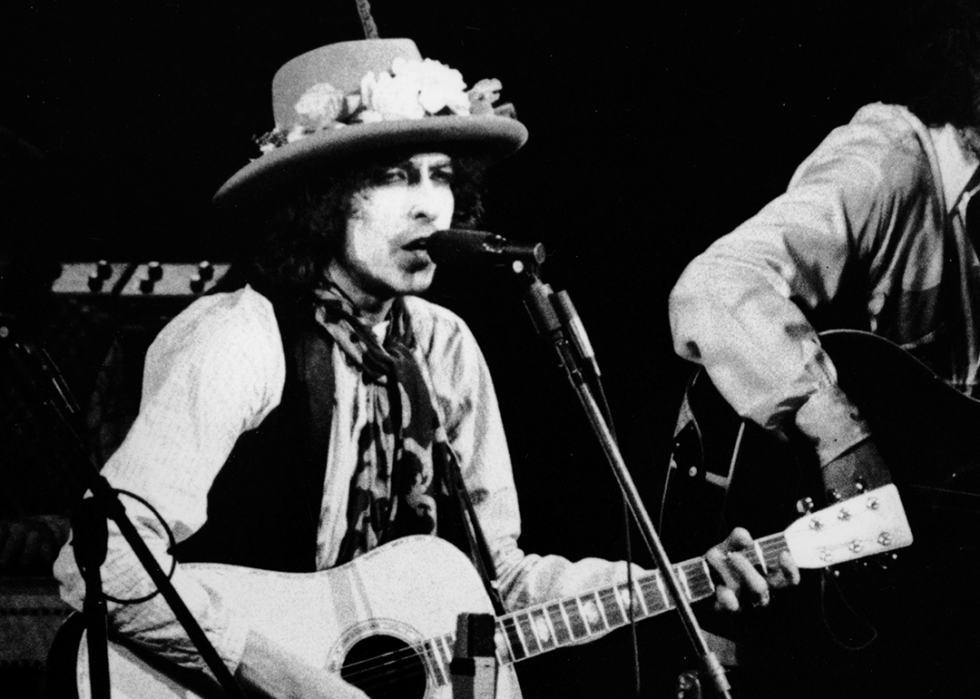
1976: 'Hurricane'
- Artist: Bob Dylan
Bob Dylan strayed from writing protest songs by the 1970s, but this one proved there was plenty of fight in him. Taking a literal approach to its subject matter, the song chronicles the unfair trial and subsequent incarceration of boxer Rubin Carter. It would be nearly a decade before Carter was granted a petition of habeas corpus on procedural grounds and released from prison.
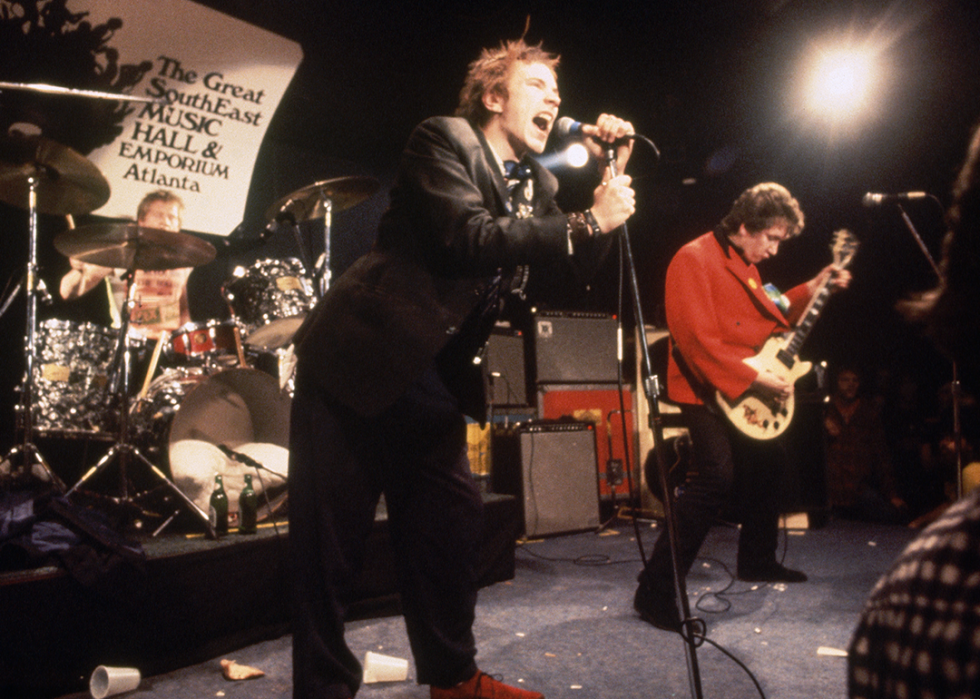
1977: 'God Save the Queen'
- Artist: Sex Pistols
Banned from the BBC for "gross bad taste," this seminal punk song equated British royalty to a "fascist regime." Released on their only album, released in 1977, it presented the Sex Pistols and the punk movement at large as a genuine force to be reckoned with. Some sources have dubbed "God Save the Queen" the most controversial song in history.
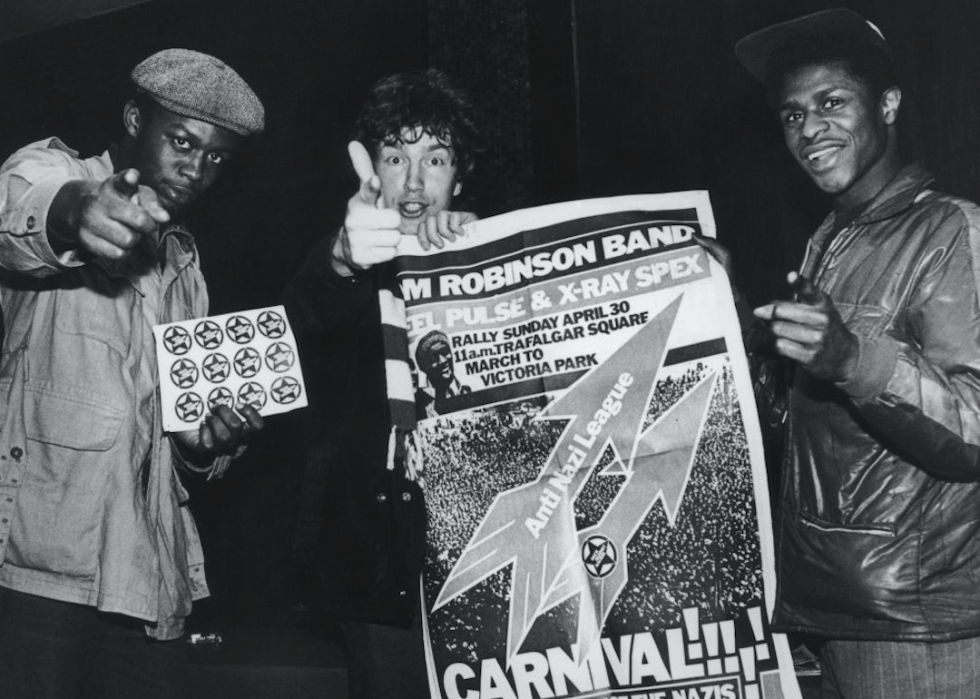
1978: '(Sing If You're) Glad to Be Gay'
- Artist: Tom Robinson Band
The Tom Robinson Band called out British hypocrisy and mistreatment while celebrating gay culture in this groundbreaking tune. A gay man himself, Tom Robinson originally wrote the song for the London Gay Pride Parade before releasing it on an EP. BBC Radio 1 refused to play the song, which became a massive hit on rival station Capitol Radio.
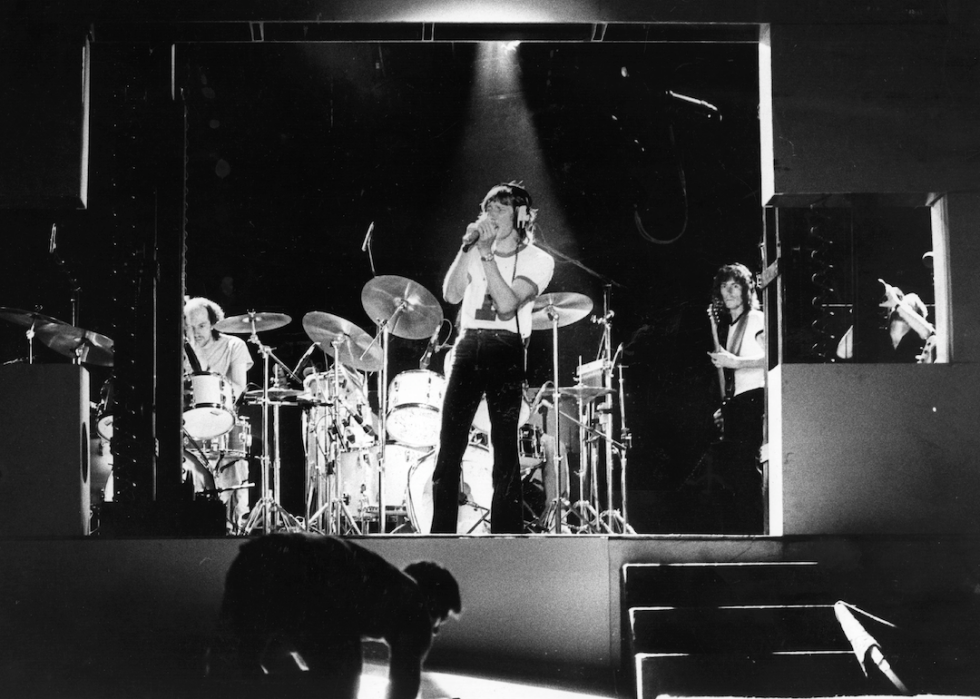
1979: 'Another Brick in the Wall (Part 2)'
- Artist: Pink Floyd
A choir of children chanting the words "Teachers! Leave those kids alone!" was bound to draw its detractors. British Minister Margaret Thatcher was one among the legion of authority figures who despised Pink Floyd's mega-popular song. When South African students later used the catchy chorus as a rallying cry against an apartheid-era education system, local radio stations banned it altogether.
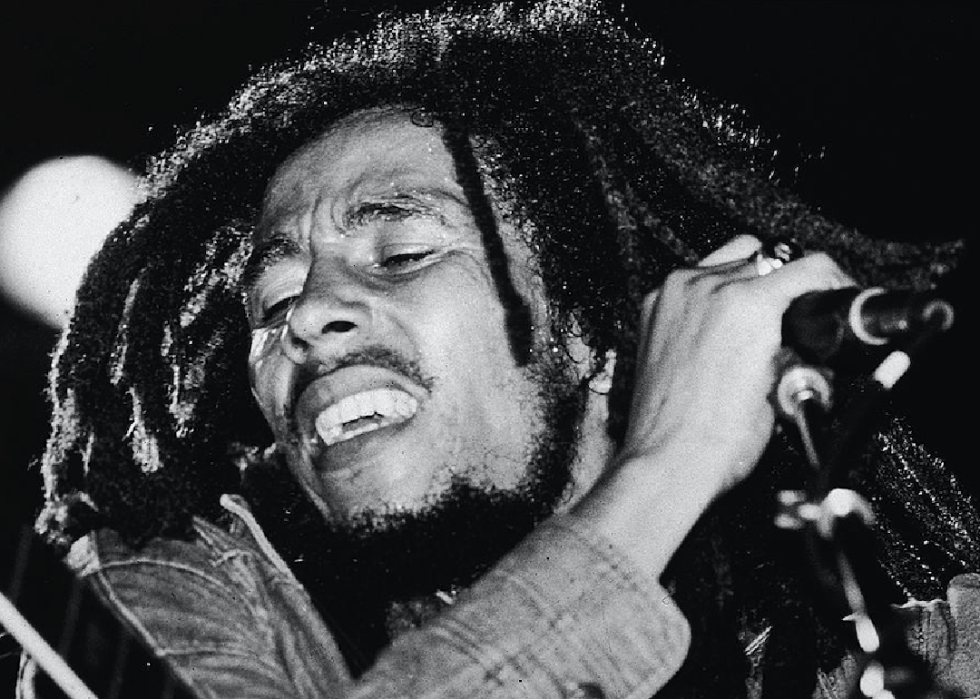
1980: 'Redemption Song'
- Artist: Bob Marley
Reggae legend Bob Marley was behind several powerful protest songs, including this acoustic ballad from his ninth album. Preaching for emancipation from both physical and mental slavery, it seeks redemption through the pursuit of pure freedom. This was Marley's last single, as well as the last song he performed in concert.
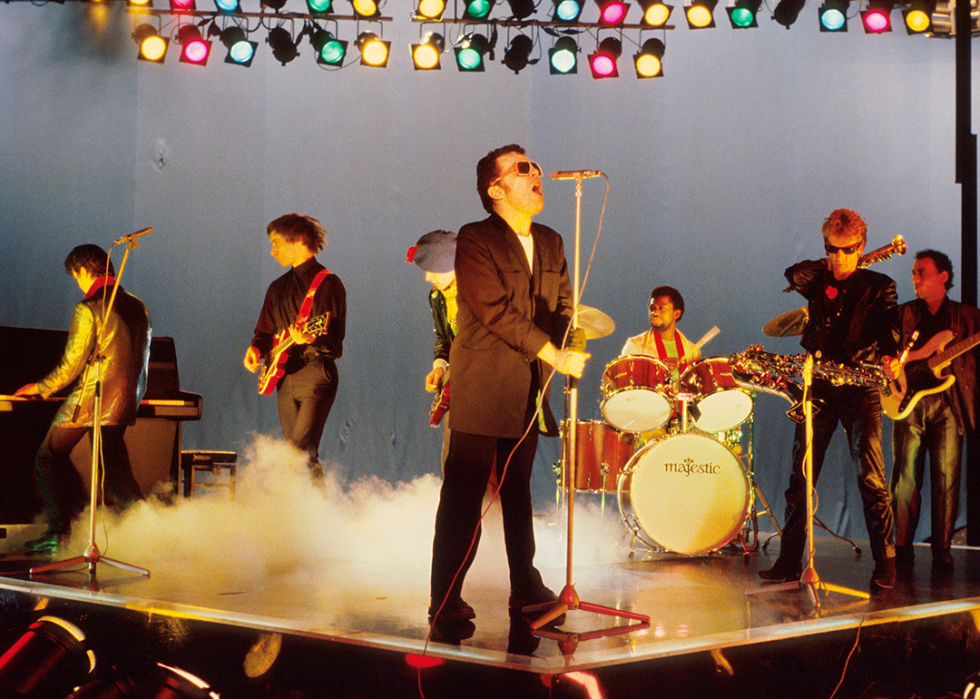
1981: 'Spasticus Autisticus'
- Artist: Ian Dury and the Blockheads
Year: 1981
Polio survivor and punk rock singer Ian Dury was not impressed or amused when the United Nations designated 1981 as the "Year of the Disabled." In direct response to the superficial gesture, Dury and co-writer Chaz Jankel crafted this purposefully offensive tune. The BBC reacted just as Dury expected: by banning the song and trying to derail his career.
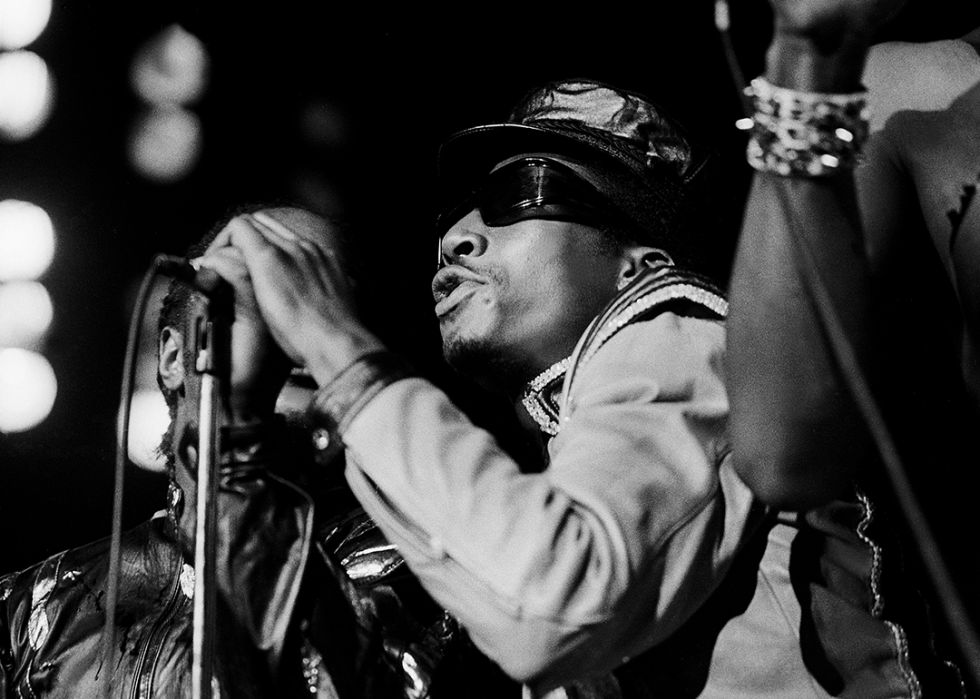
1982: 'The Message'
- Artist: Grandmaster Flash and the Furious Five
Hip-hop pioneer Grandmaster Flash tackles the stress and struggle of inner-city poverty in this influential rap song. Its vivid style of street reporting would open the floodgates for a bevy of subsequent acts, including N.W.A and Public Enemy. Lines like "You'll grow in the ghetto livin' second-rate" continue to resonate in the age of Black Lives Matter and other social justice movements.
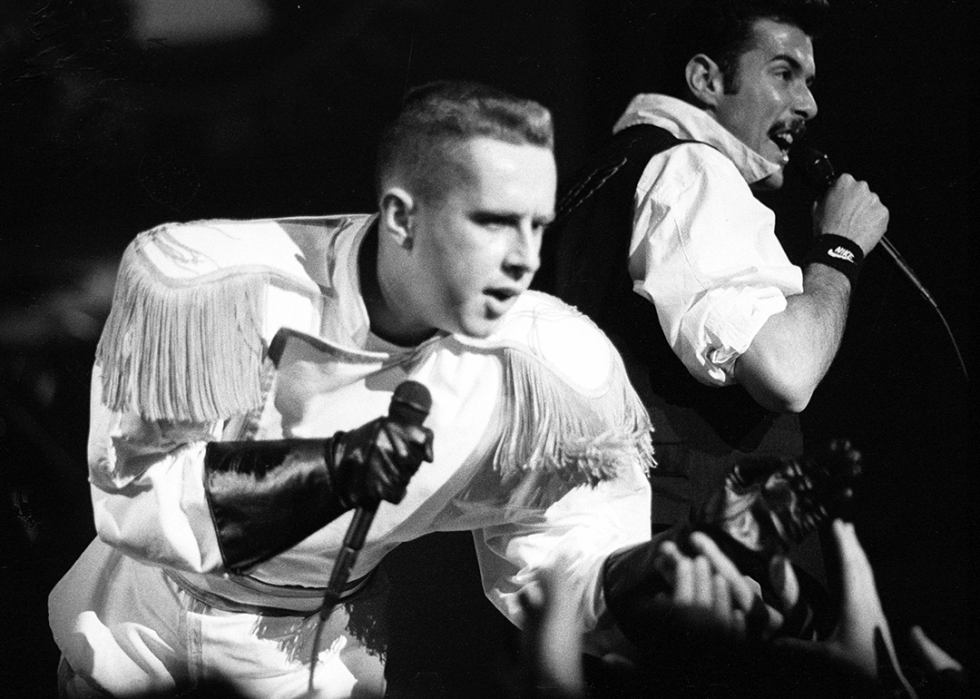
1983: 'Relax'
- Artist: Frankie Goes to Hollywood
This sexually charged single from Frankie Goes to Hollywood barely penetrated the mainstream when it first debuted. Rolling out alongside a cheeky ad campaign and explicit music video, it gradually began to gain steam. A ban by the BBC gave the song an unintended boost, sending it to the top of the U.K. pop chart and keeping it there for five weeks.

1984: 'Born in the USA'
- Artist: Bruce Springsteen
By employing bouncy instrumentals and a fist-pumping chorus, Bruce Springsteen created one of the most misunderstood anthems in music history. What was intended as a song about despair among war veterans became a patriotic rallying cry used by former President Ronald Reagan during his 1984 re-election campaign. "Born in the U.S.A." is still commonly perceived as a song of "cheerful affirmation," to quote Washington Post columnist George Will.
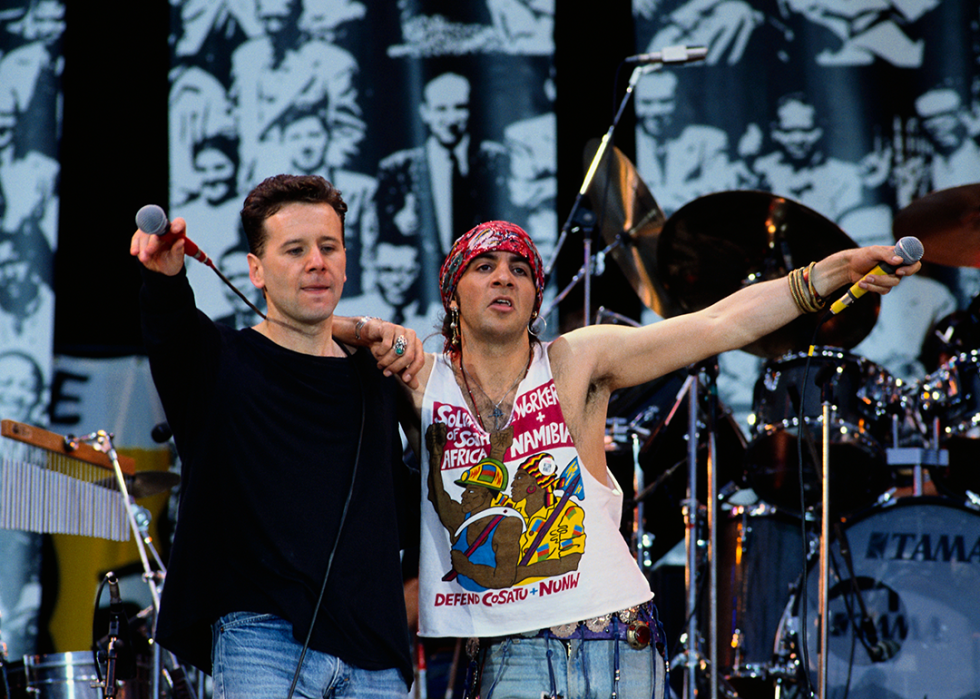
1985: 'Sun City'
- Artist: United Artists Against Apartheid
By 1985, South African apartheid had been in place for 37 years. Hoping to change the brutal system of racial segregation, Steven Van Zandt and Arthur Baker assembled what rock critic Dave Marsh described as "the most diverse line up of popular musicians ever assembled for a single session." The result was this epic protest song and album, which featured Joey Ramone, Miles Davis, and just about everyone in between.

1986: 'Dear God'
- Artist: XTC
What's one way to guarantee controversy in America? Write a cheeky anti-religious song and then put it on the radio. That's exactly what XTC's Andy Partridge did with "Dear God," which prompted angry calls, bomb threats, and a hostage situation.

1987: 'Beds Are Burning'
- Artist: Midnight Oil
With this global hit single, Australian rock band Midnight Oil issued a kind reminder that the continent was founded on mass genocide. The infectious protest song also demanded reparations for the remaining members of an Aboriginal group known as the Pintupi. In 2009, it was rerecorded and rebranded as a climate change anthem.
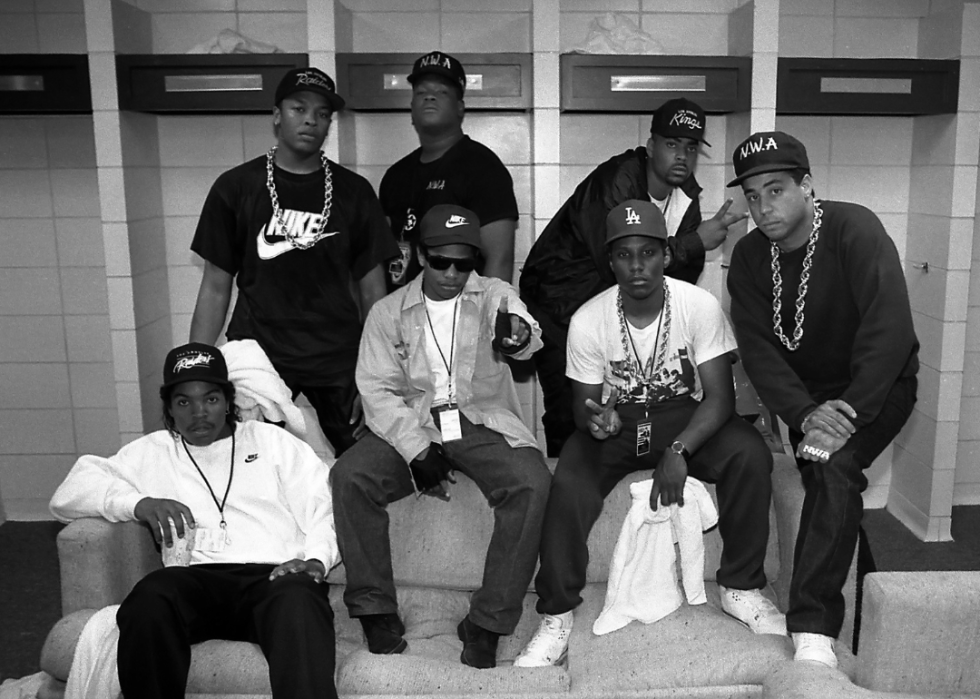
1988: 'F--k tha Police'
- Artist: N.W.A
Hip-hop outfit N.W.A took its First Amendment rights to dangerous extremes in 1988 with the release of this massively controversial track. Sparing no detail or lyric depicting police harassment, the song predictably infuriated various law enforcement agencies. The drama culminated in 1989, when the group was arrested after performing it live in Detroit.
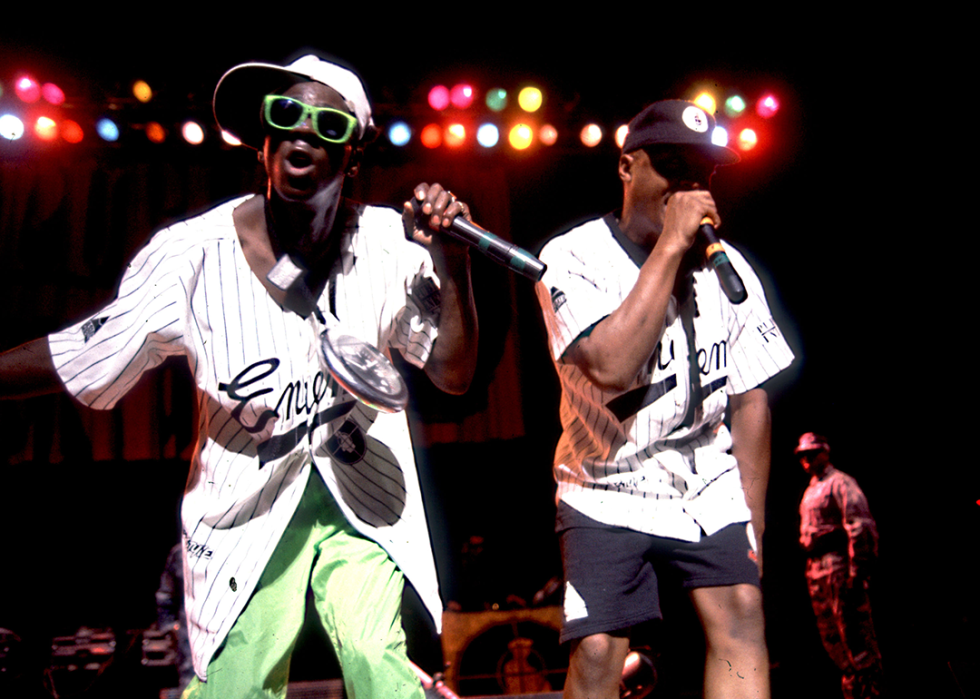
1989: 'Fight the Power'
- Artist: Public Enemy
Lyrical maestro Chuck D. and hype-man Flavor Flav joined forces on some of hip-hop's most searing protest songs, including this one from 1989. Alluding to various aspects of the Black experience in America, it calls out decades of racism and invokes the spirit of resistance. The song first appeared on the soundtrack to Spike Lee's "Do the Right Thing" and then again on the group's 1990 album "Fear of a Black Planet."
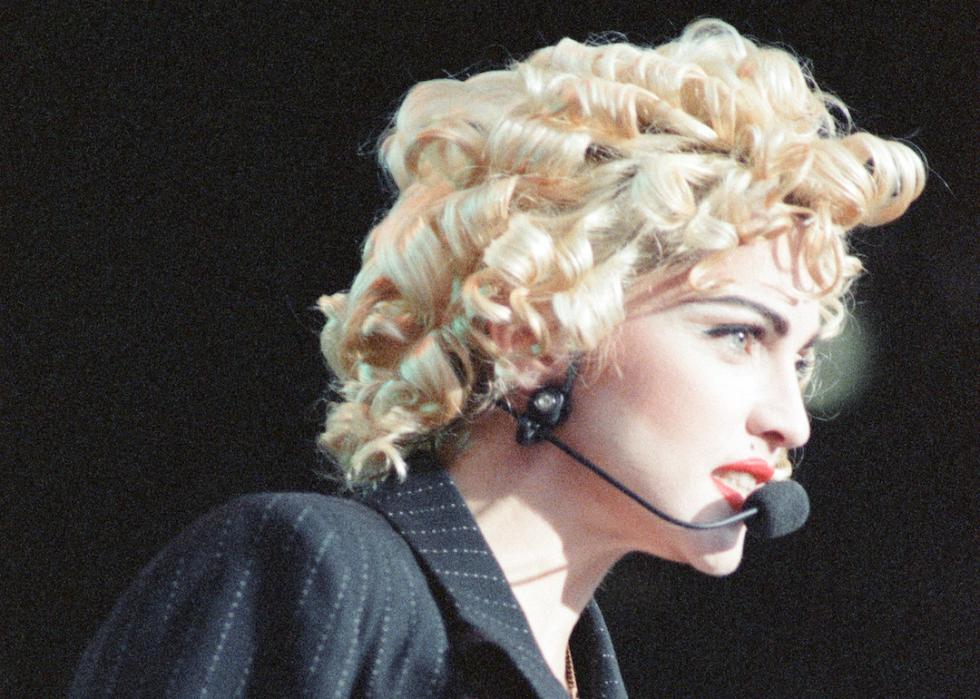
1990: 'Justify My Love'
- Artist: Madonna
A year after shocking the world with the music video for "Like a Prayer," Madonna upped the ante with the steamy music video for this (far) less iconic song. It was swiftly banned from MTV, and then sold on VHS in huge numbers, bringing Madonna's potential endgame to fruition.

1991: 'Brenda's Got a Baby'
- Artist: 2Pac
Taking inspiration from a tragic newspaper article, 2Pac delivered a stirring narrative on his first major hit single. It chronicles the story of a teenage mother named Brenda living in the ghetto and struggles to support her newborn baby. The song was featured on his debut album "2Pacalypse Now," which former Vice President Dan Quayle publicly denounced.

1992: 'Killing in the Name'
- Artist: Rage Against the Machine
As the band's name suggests, Rage Against the Machine took a no-holds-barred approach to various political and social injustices. This lead single off the group's major label debut endures as one of its quintessential tunes, putting institutional racism and police brutality in its crosshairs and hitting the bullseye. Loaded with F-bombs and released in the wake of the Los Angeles riots, the song was alternately censored or banned by various outlets.

1993: 'Rebel Girl'
- Artist: Bikini Kill
Released in three different versions, "Rebel Girl" was among the foremost works to emerge from the riot grrrl movement. Emanating with feminist empowerment and punk attitude, the song is delivered from an unabashedly gay perspective. Legendary rocker Joan Jett produced the single, providing additional guitar and backing vocals on it as well.

1994: 'Closer'
- Artist: Nine Inch Nails
True to its grim industrial vibe, this Nine Inch Nails classic was all kinds of disturbing when it first debuted. The music video was akin to a body-horror short film, while the lyrics delivered a line so explicit it's remained the stuff of legend. Both the video and song were censored for airplay, though, surely, that didn't stop many suburban parents from complaining about the content.

1995: 'Just a Girl'
- Artist: No Doubt
Ska band No Doubt broke out big time with this massively popular single, on which singer Gwen Stefani strikes the perfect balance between irony and frustration. Railing against the modern patriarchy, she dismantles sexist stereotypes from the inside out. "Oh, am I making myself clear?" she asks in the song. The answer was a resounding yes.
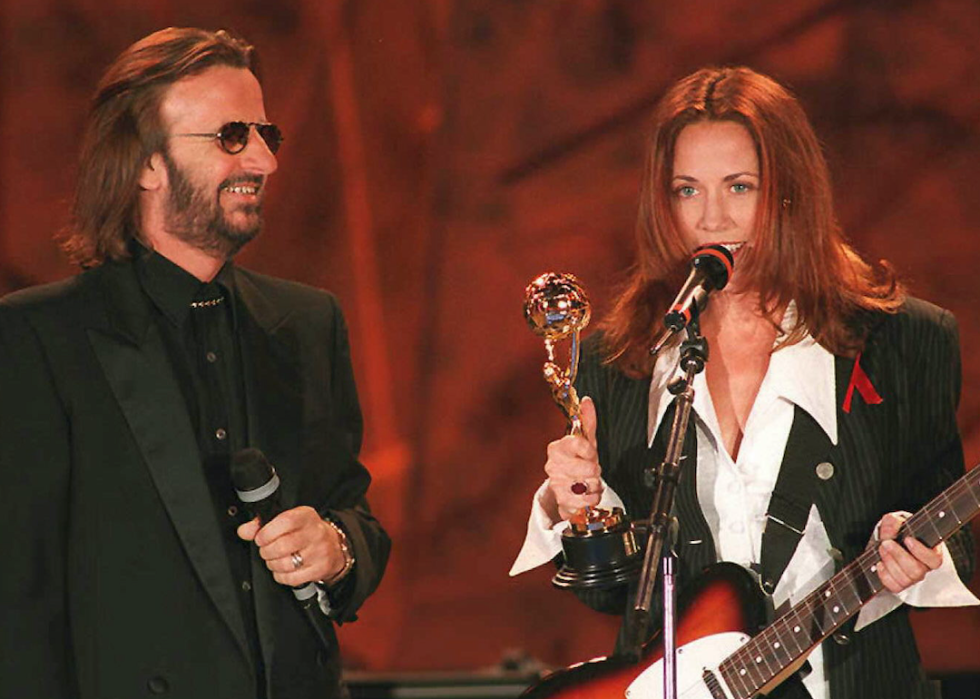
1996: 'Love is a Good Thing'
- Artist: Sheryl Crow
Sheryl Crow was a national darling by the time she released her eponymous second album, but not everyone was digging this particular song. The lyric about children killing each other with "a gun they bought at Walmart discount stores" might have had something to do with it. As a direct result, the retail giant refused to stock Crow's album on its shelves.

1997: 'This Is Not Your Country'
- Artist: Morrissey
Always ready and willing to voice his opinion, former Smiths frontman Morrissey can be quite the rabble-rouser. With this 1997 effort, he took on the theme of immigration by adopting a harsh nationalist tone. Some will argue the song is overly xenophobic, which Morrissey might argue is the entire point.

1998: 'Eisler on the Go'
- Artist: Billy Bragg & Wilco
Folk legend Woody Guthrie was so prolific in his time that he left behind thousands of lyrics, many of which had never been turned into songs. Enter Billy Bragg & Wilco, who added melodies and arrangements for the 1998 album "Mermaid Avenue." Among the album's more socially conscious tunes was "Eisler on the Go," about Austrian composer and lifelong communist Hanns Eisler.

1999: 'Goodbye Earl'
- Artist: Dixie Chicks
Shining a darkly comedic spotlight on issues of domestic abuse, this country tune was written by Dennis Linde and then popularized by the Dixie Chicks (who rebranded as the Chicks in 2020). It centers on two former best friends named Mary Ann and Wanda, who team up to murder Wanda's abusive husband, Earl. The song debuted in 1999 and broke out the following year when various radio stations refused to play it.

2000: 'Stan'
- Artist: Eminem
Rapper Eminem rode in on a wave of controversy and kept that momentum going with his second album, which features this smash hit. What starts as a series of fan letters develops into something far more demented as the song spirals into a bad case of life imitating art. By the time Eminem responds, it's far too late…

2001: 'Makeshift Patriot'
- Artist: Sage Francis
Rhode Island's Sage Francis took a trip to Ground Zero just five days after 9/11 and recorded this underground hit a month later. Lambasting exploitative media tactics and other capitalist crutches, Francis emphasizes the real tragedies at hand. Many of the lyrics do seem downright sage in retrospect.
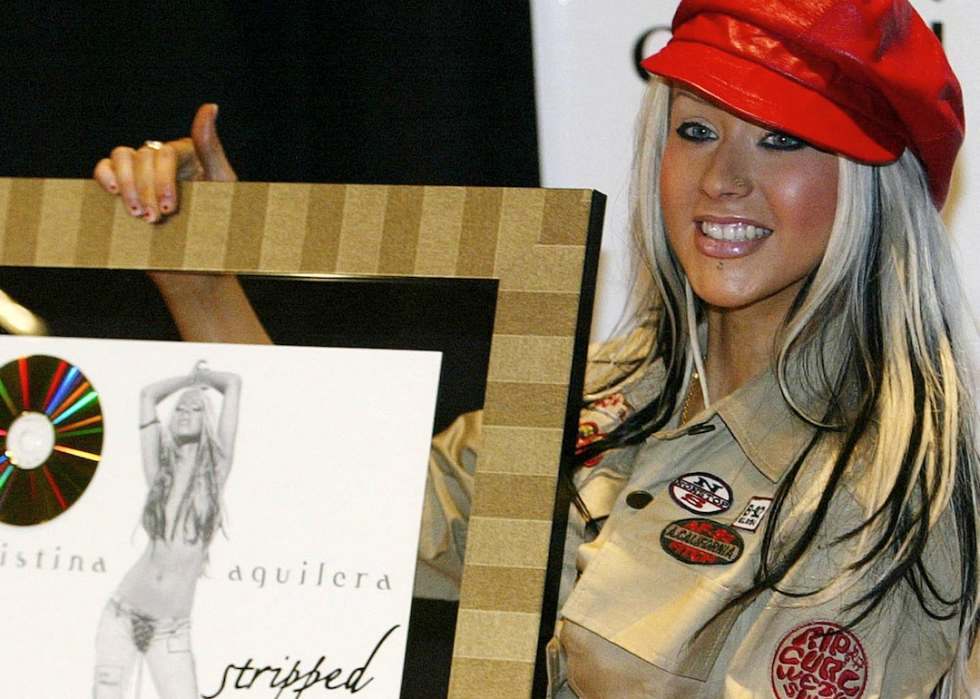
2002: 'Dirrty'
- Artist: Christina Aguilera
Christina Aguilera went from coy girl next door to scandalous sex queen with her fourth studio album, "Stripped." Leaving no room for doubt was the adjoining music video for this lead single, which depicted plenty of bare flesh and various fetishized images. The public outcry that followed was swift, sexist, and widespread.

2003: '(s)AINT'
- Artist: Marilyn Manson
Marilyn Manson was no stranger to controversy by the time he self-financed the explicit music video for this predictably grim song. Directed by Asia Argento, it left virtually no sin or graphic image to the imagination. Manson's own record label didn't even wait for the blowback, placing a domestic ban on the video back in 2003.

2004: 'American Idiot'
- Artist: Green Day
Mischievous pop-punk outfit Green Day underwent an evolution of sorts when it released this scathing single. Asking if listeners can "hear the sound of hysteria," the song derides media fear tactics and their mind-controlling effects. And while the lyrics aren't overtly aimed at politicians, that didn't stop Britain from using the song for political ends in 2018.

2005: 'B.Y.O.B'
- Artist: System of a Down
Picking up where Rage of the Machine left off, metal band System of a Down has skewered various social and political targets throughout its long career. This angry, award-winning protest song was released two years into the Iraq War, when the country was sending thousands of troops to fight for a cause they didn't fully understand. Amid a flurry of breakneck tempo changes, lead singer Serj Tankian howls one question over and over again, "Why do they always send the poor?"

2006: 'Not Ready to Make Nice'
- Artist: Dixie Chicks
When lead singer Natalie Maines made disparaging remarks about George W. Bush in 2003, it sent the Dixie Chicks into a widely publicized tailspin. By 2006, the country group was still "Not Ready to Make Nice"—and neither were their fans. This unapologetic comeback song remains the group's biggest domestic hit to date.

2007: 'Paper Planes'
- Artist: M.I.A.
Forged visas and border crossings might sound like the stuff of potential controversy, but it was the chorus of loud gunshots that gave outlets pause. MTV and various radio stations responded by muting out the gunshots during airplay, thereby squeezing some life out of the song. This was just one among a series of controversial benchmarks for outspoken British rapper M.I.A.

2008: 'I Kissed a Girl'
- Artist: Katy Perry
Turning away from her Christian music roots, Katy Perry launched her pop career by way of this smash hit single. While some might see the lyrics as problematic among certain groups, it was actually Perry's appropriation of gay culture that drew the most scorn. The singer herself later admitted that the song incorporates "a couple of stereotypes."

2009: 'If You Seek Amy'
- Artist: Britney Spears
Global phenom Britney Spears made it abundantly clear that she was not a girl, and most definitely a woman, with this not-so-subtle tune. Released as the third single from her sixth studio album, it has quite little to do with looking for someone named "Amy." The American Parents Television Council was definitely not amused.

2010: 'Pumped Up Kicks'
- Artist: Foster the People
The indie pop veneer of this 2010 single makes its core theme of anti-gun violence all the more unsettling. To explore the lyrics is to discover a twisted take on mass shootings, which comes from the perspective of a homicidal teenager and remains relevant to this day. Foster the People felt MTV was being supremely hypocritical when it censored the song for airplay.

2011: 'Man Down'
- Artist: Rihanna
Reportedly inspired by Bob Marley's "I Shot the Sheriff," this song and its accompanying music video saw Rihanna taking on the role of a vengeful assault victim. Turning the tables on her assailant, the singer's alter-ego hunts down and kills him. In response to a flood of complaints, Rihanna took to Twitter to defend the song's controversial narrative.

2012: 'Putin Lights up the Fires'
- Artist: P**** Riot
The same year the members of P**** Riot were sentenced to prison for "hooliganism motivated by religious hatred," the group released this scathing response. In true band fashion, the song boldly proclaimed, "Seven years is not enough for us—give us 18!" The group's members were lucky that Russia's government didn't oblige.

2013: 'We Can't Stop'
- Artist: Miley Cyrus
In 2013, former Disney darling Miley Cyrus took just about every conceivable measure to distance herself from her G-rated past. Among her many efforts was this sultry party track, which came loaded with drug references. Keeping the controversy alive was a copyright infringement lawsuit from Michael May, who claims that the song lifted his lyrics; the parties eventually reached an undisclosed settlement.

2014: 'American Skin (41 Shots)'
- Artist: Bruce Springsteen
By the time this protest song appeared on Bruce Springsteen's 2014 album "High Hopes," it had already generated more than a decade's worth of controversy. Inspired by the police shooting of Amadou Diallo, the song debuted during a concert at Madison Square Garden in 2000. In response, the New York City Police Department Patrolmen's Benevolent Association called for a public boycott of Springsteen's music.

2015: 'I Can't Breathe'
- Artist: P**** Riot
By 2015, P**** Riot was out of prison and unwilling to let a little hard time get in its way. Shaking things up on American soil, the band dedicated its first English tune to anyone who's been feels choked to death by war and police violence. The song is named in honor of police brutality victim Eric Garner, whose last words were, "I can't breathe."

2016: 'Formation'
- Artist: Beyoncé
Until 2016, Beyoncé had expressed little interest in using the struggles of Black Americans as a thematic basis for her music. That all changed with "Formation," a super-charged anthem that sprung from the collective well of Black female empowerment. On the heels of a controversial video, Queen Bey added fuel to the fire with a militarized Super Bowl performance.

2017: 'The Heart Part 4'
- Artist: Kendrick Lamar
Compton rapper Kendrick Lamar took on a slew of new targets with the release of what was a hotly anticipated track. Representing the fourth installment in his "The Heart" series, it calls out former President Donald Trump and references ongoing beef with other rappers. It also sees Lamar declaring himself the "greatest rapper alive," which might very well be true.

2018: 'This is America'
- Artist: Childish Gambino
Arguably the most talked-about music video of the 21st century, "This Is America" provided an instant jolt to the pop culture zeitgeist. Bridging the gap between past and present, it packs more than a century's worth of racial struggles into its near-five-minute runtime. Contemporary milestones often come and go in the blink of an eye, but this one remains too powerful to forget.

2019: '7 Rings'
- Artist: Ariana Grande
Ariana Grande may be a perennial fan favorite these days, but that doesn't mean she's impervious to the occasional controversy. Despite setting a Spotify record for the most streams in a 24-hour period, this #1 single and its video rolled out to accusations of cultural appropriation. When asked not to perform the song at the 2019 Grammys, Grande responded by skipping out on the ceremony altogether.

2020: 'WAP'
- Artist: Cardi B and Megan Thee Stallion
Picking up the baton from the Shirelles, rappers Cardi B and Megan Thee Stallion continued to push the envelope of female sexual expression by releasing "WAP," which features creatively explicit lyrics that incited backlash from conservatives. The Federal Communications Commission allegedly tried to sue Cardi B following her performance of the song at the Grammy Awards. Sex-positive songs will always press a few buttons, but maybe none more so than "WAP."

2021: 'Montero (Call Me By Your Name)'
- Artist: Lil Nas X
It is no surprise that the music video for "Montero (Call Me By Your Name)," which features the artist sliding down a pole to hell and giving the devil a lap dance, received heat from conservative journalists for its queer eroticism. Although the song wasn't officially banned on streaming platforms, some international fans claimed it was no longer available for streaming in their country.

2022: 'Grrrls'
- Artist: Lizzo
Originally released with the lyric "spaz," Lizzo's own fans took to Twitter to express their disappointment with the ableist language. But unlike most artists who went through similar controversies, Lizzo acknowledged the criticism and, a week later, rereleased the song with a lyric change and issued an apology. Lizzo was praised by fans and critics alike for her proactive response, and although the artist is not shy of pushing the boundary, there are some lines that even she won't cross.
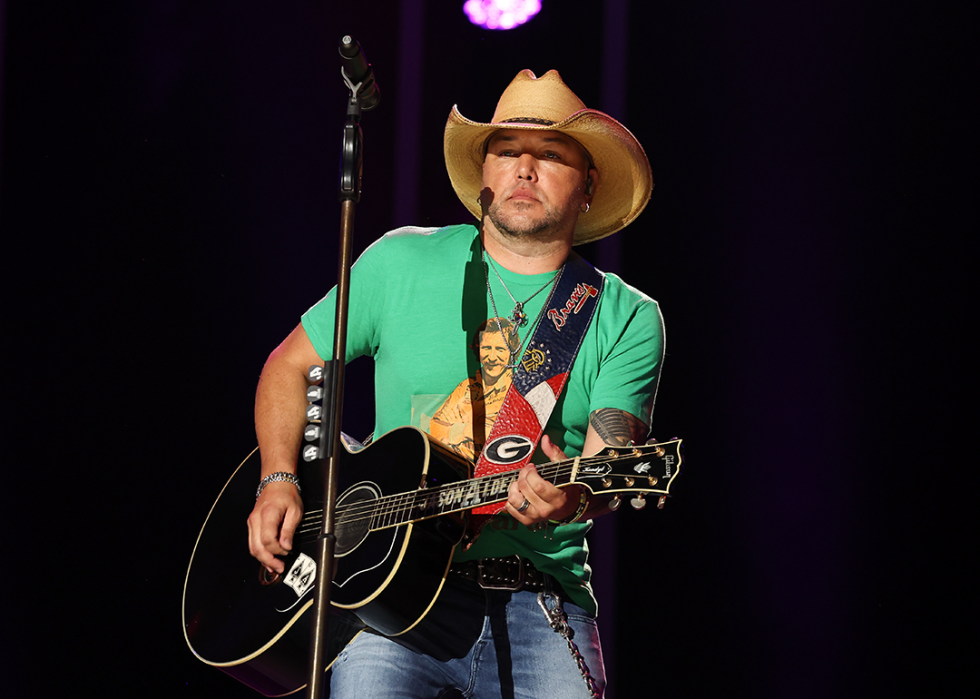
2023: 'Try That In A Small Town'
- Artist: Jason Aldean
Aldean's music video features clips from the looting that occurred during various Black Lives Matter protests and the lyrics: "Try that in a small town/ See how far you make it down the road." Some say such lyrics encourage violence at a time when racism is at the forefront of public conversation. Perhaps that is why Country Music Television ultimately pulled the music video.

2024: 'Not Like Us'
-Artist: Kendrick Lamar
Few hip-hop feuds could rival the beef between Drake and Kendrick Lamar—after the Toronto-born muscian released two tracks dissing Lamar in April 2024, Lamar responded with a multi-song attack spearpointed by the ultra-catchy "Not Like Us." The track spotlights serious accusations against Drake, centered around a refrain questioning Drake's authenticity as a rapper. "Not Like Us" ultimately spent a record-breaking 25 weeks atop the Billboard Hot Rap Songs chart, leaving no doubt as to which artist won the war.

2025: 'Actually Romantic'
-Artist: Taylor Swift
When you're as famous as Taylor Swift is, controversy is inevitable. Her October 2025 album "The Life of a Showgirl" proved to be her most divisive album yet, but one song in particular earned the most headlines: "Actually Romantic," which many took to be a diss track aimed at fellow pop star Charli xcx. While Swift certainly hasn't confirmed the target of the song—or if it's about more than one person or event—the references peppered throughout do seem centered around Charli. And whether the feud is one-sided or not, Swift's detractors argue that the song is petty and punching down.
Additional writing by Rachel Geveden, Cu Fleshman, Louis Peitzman. Story editing by Chris Compendio. Copy editing by Paris Close.



